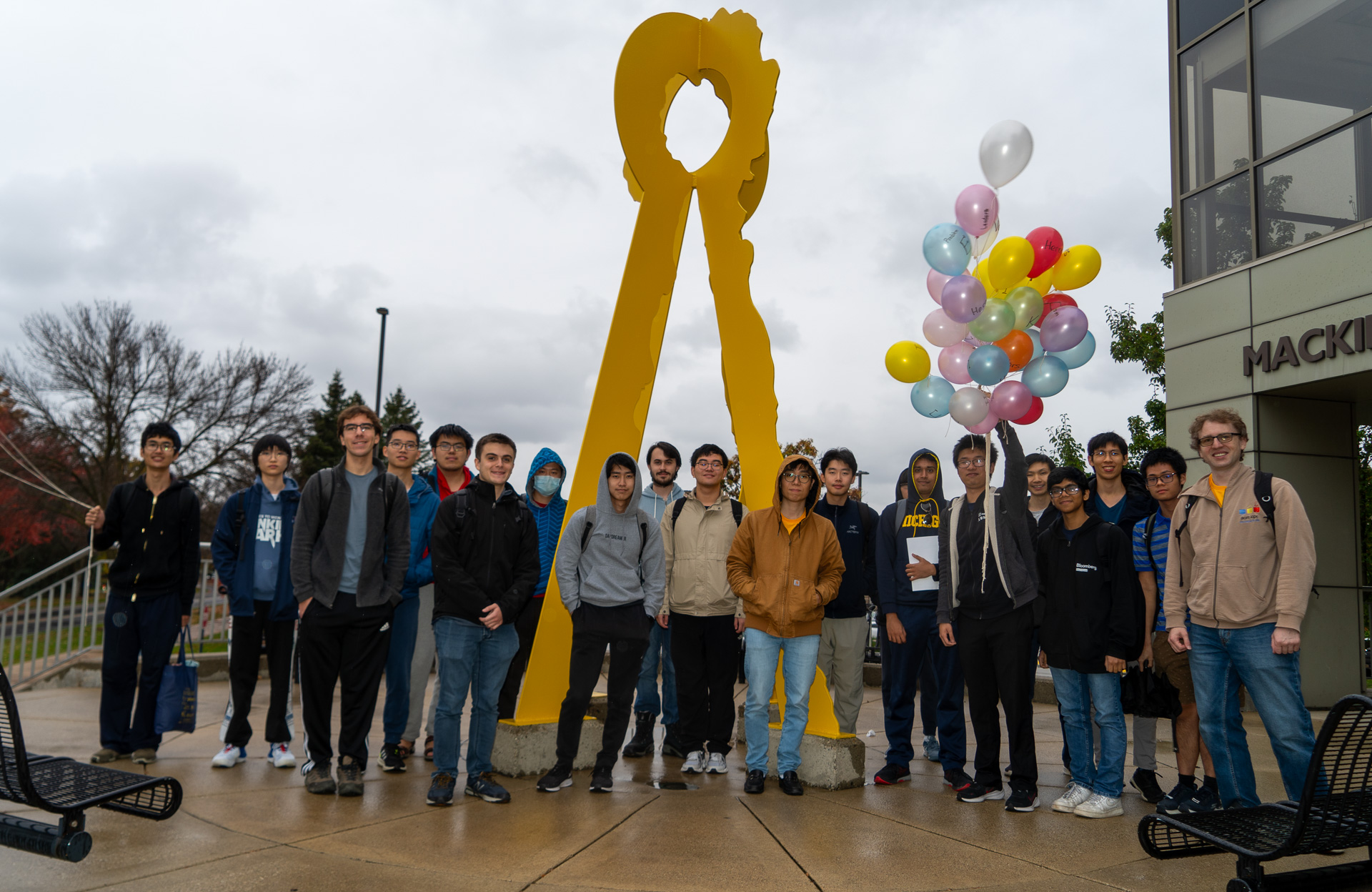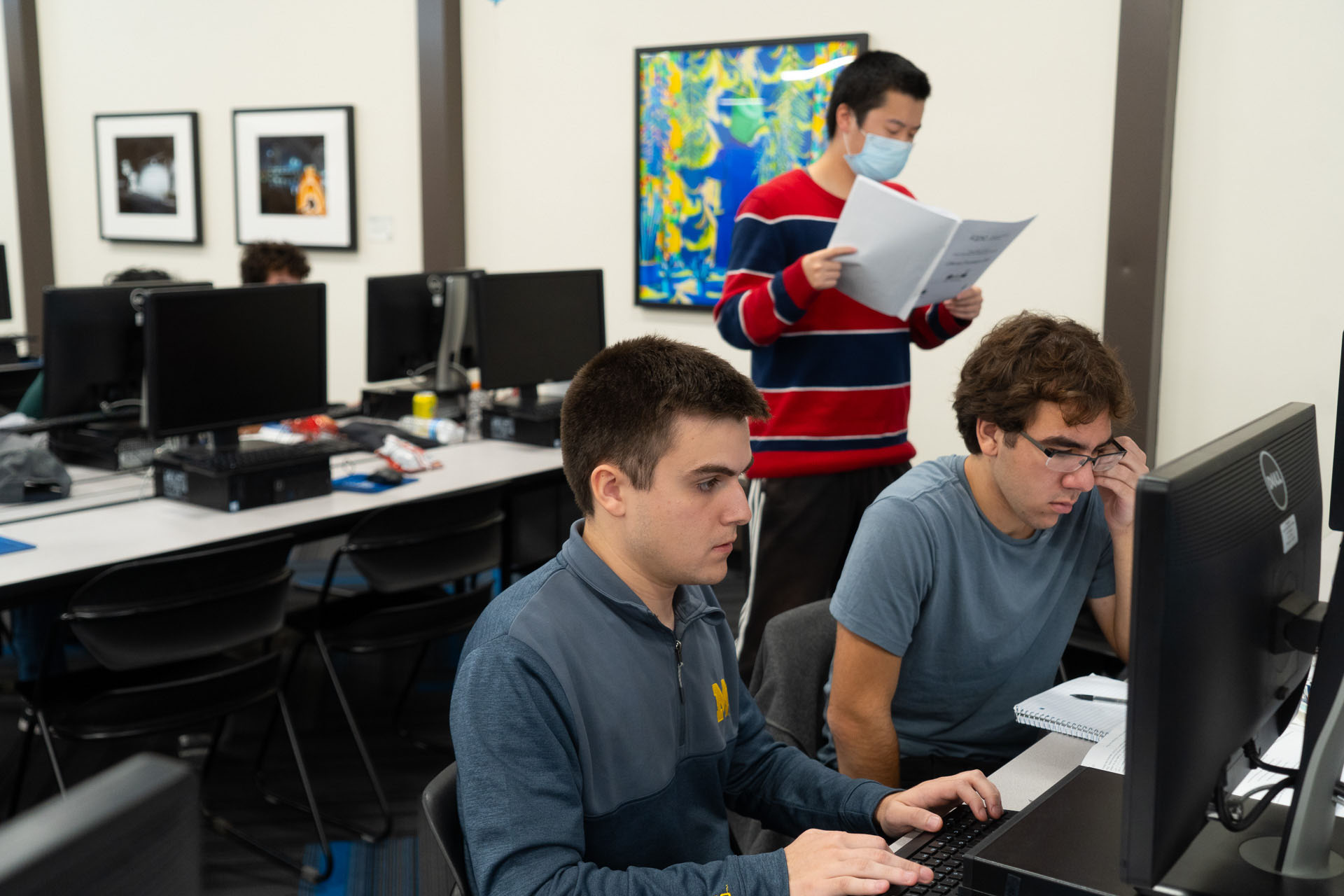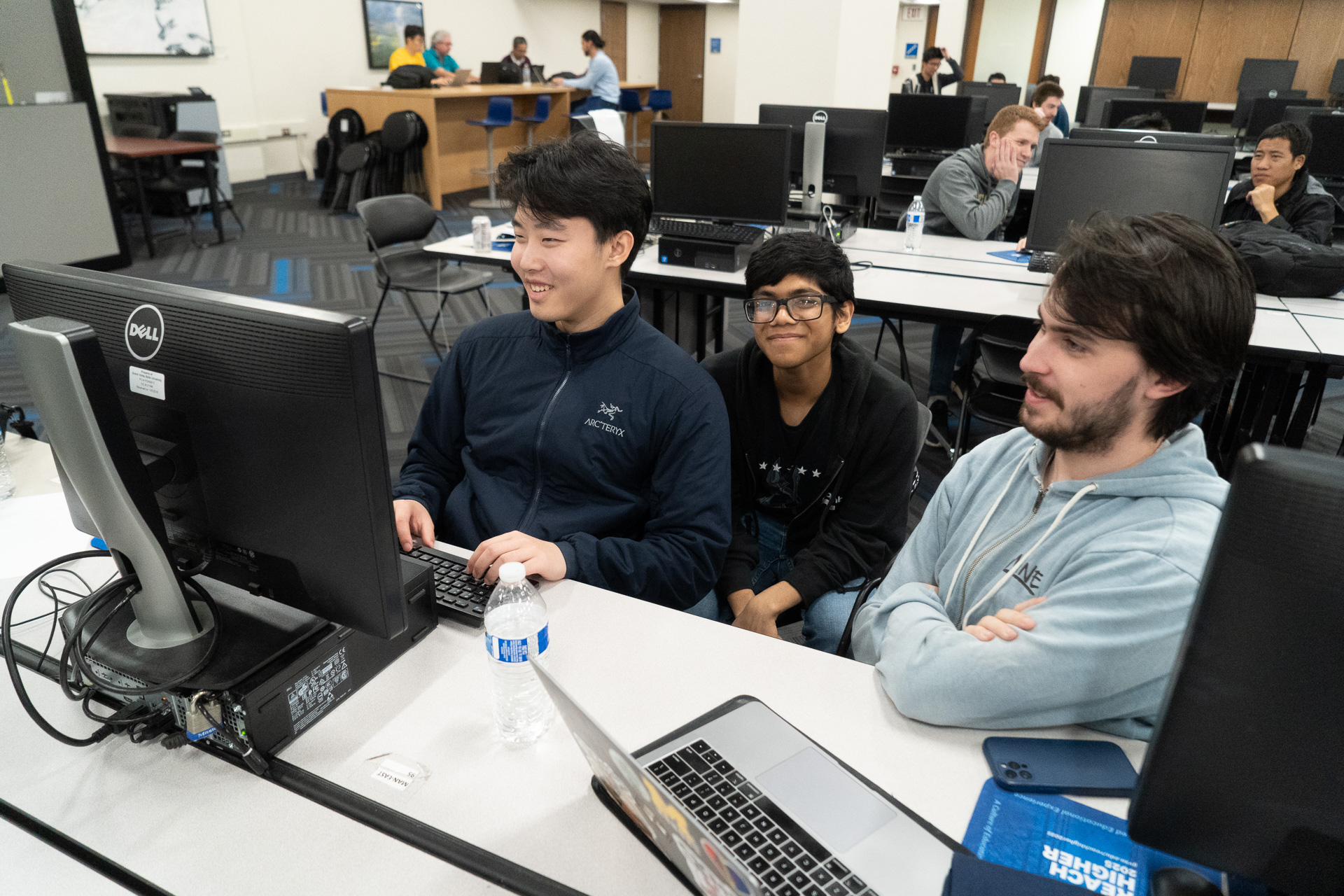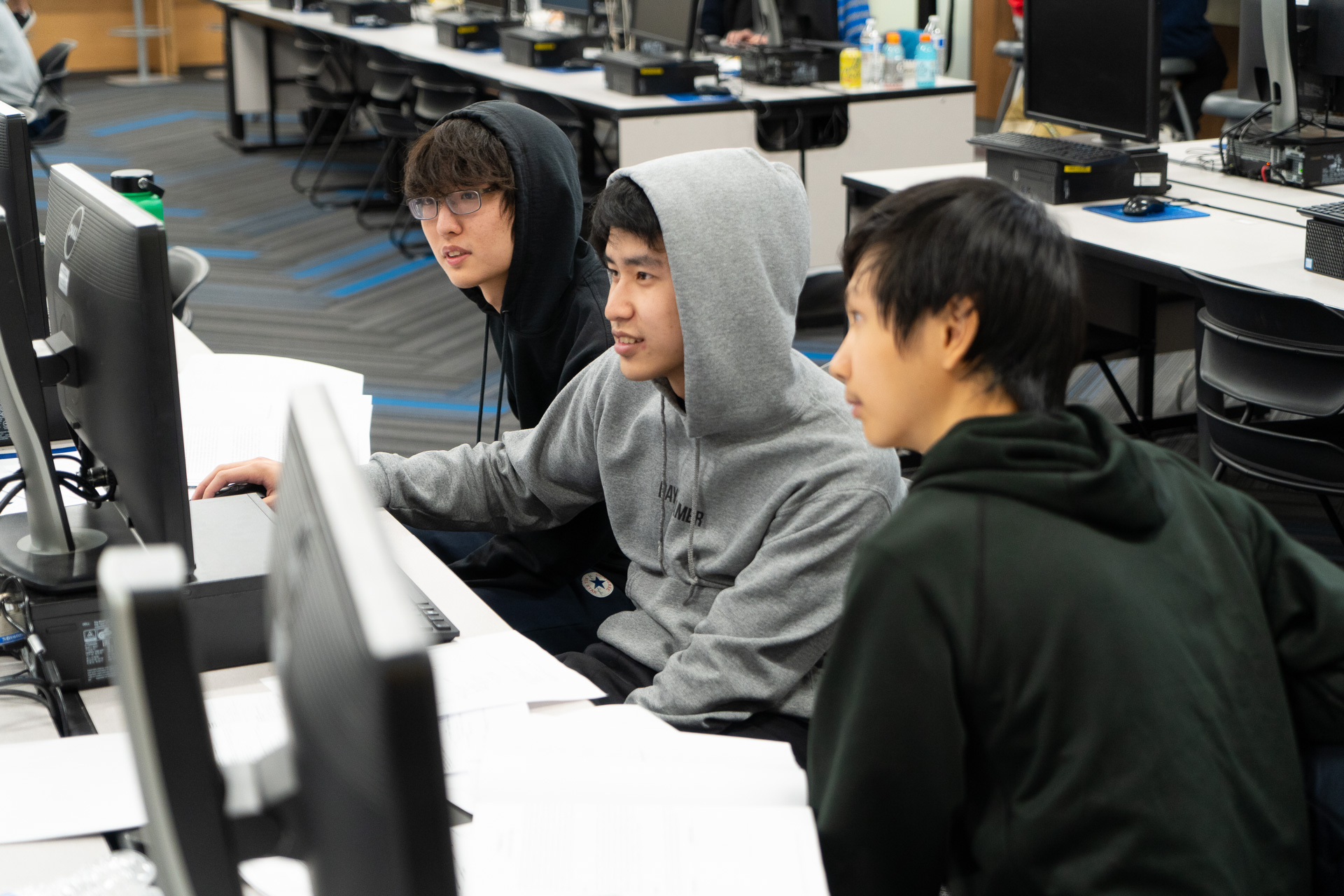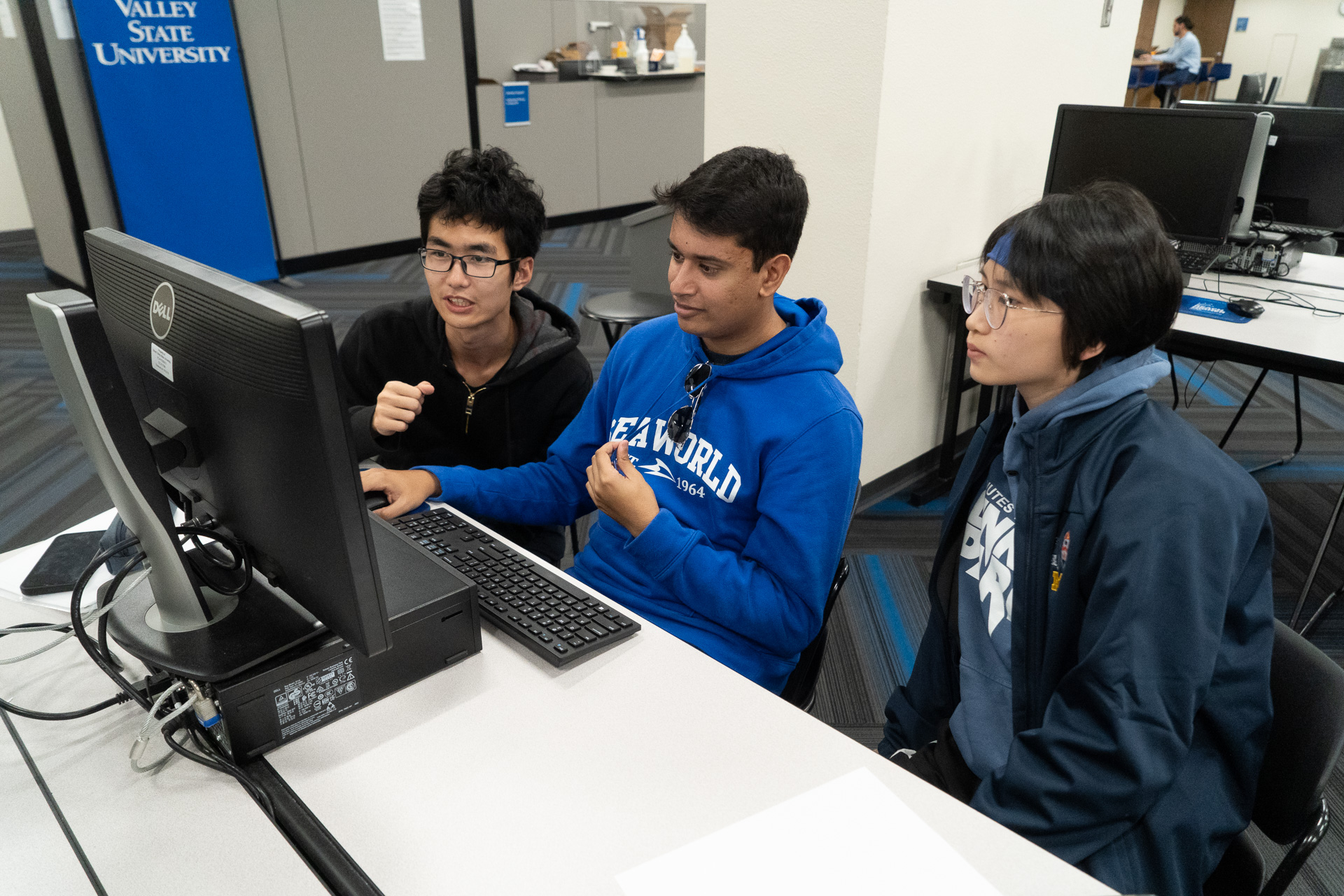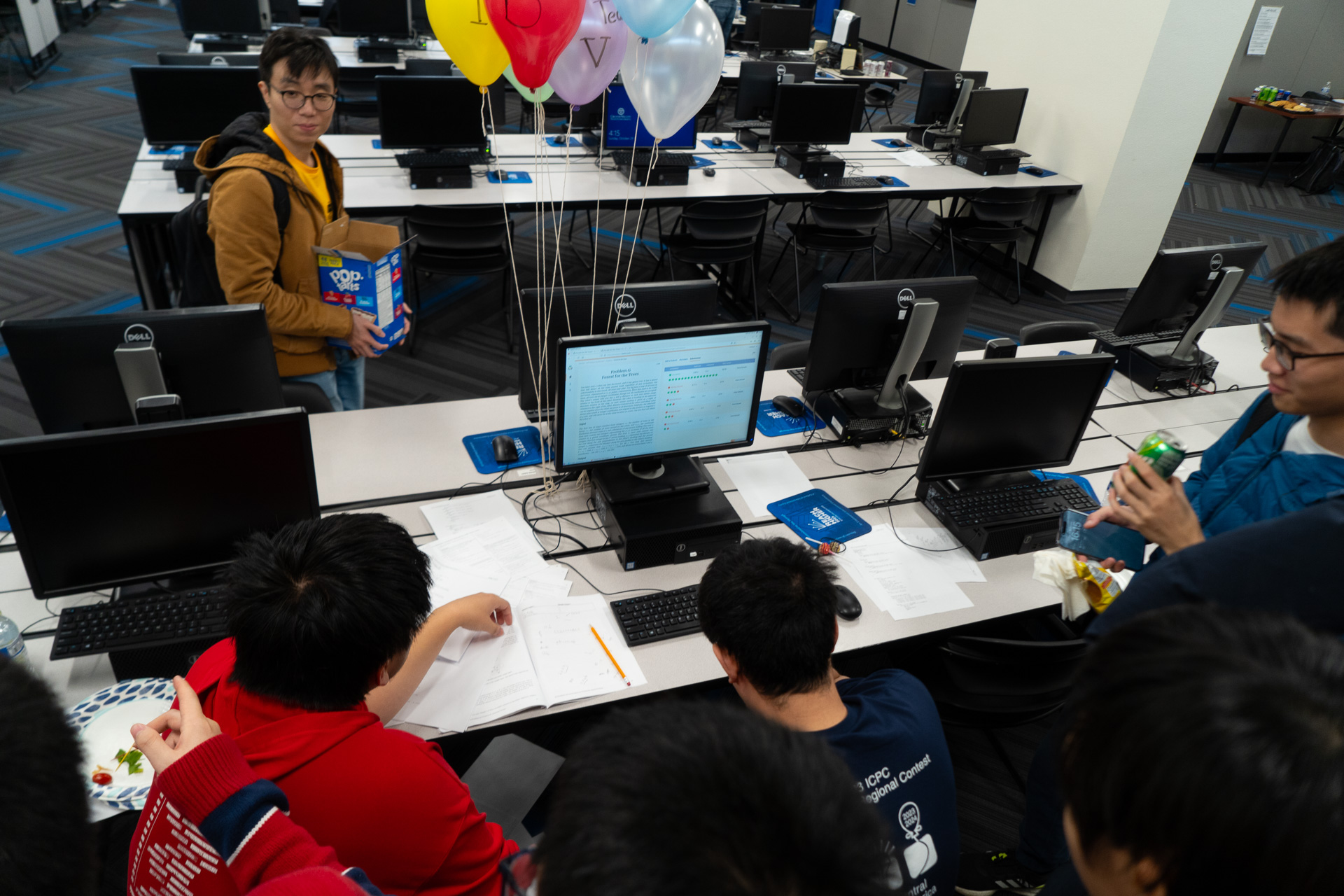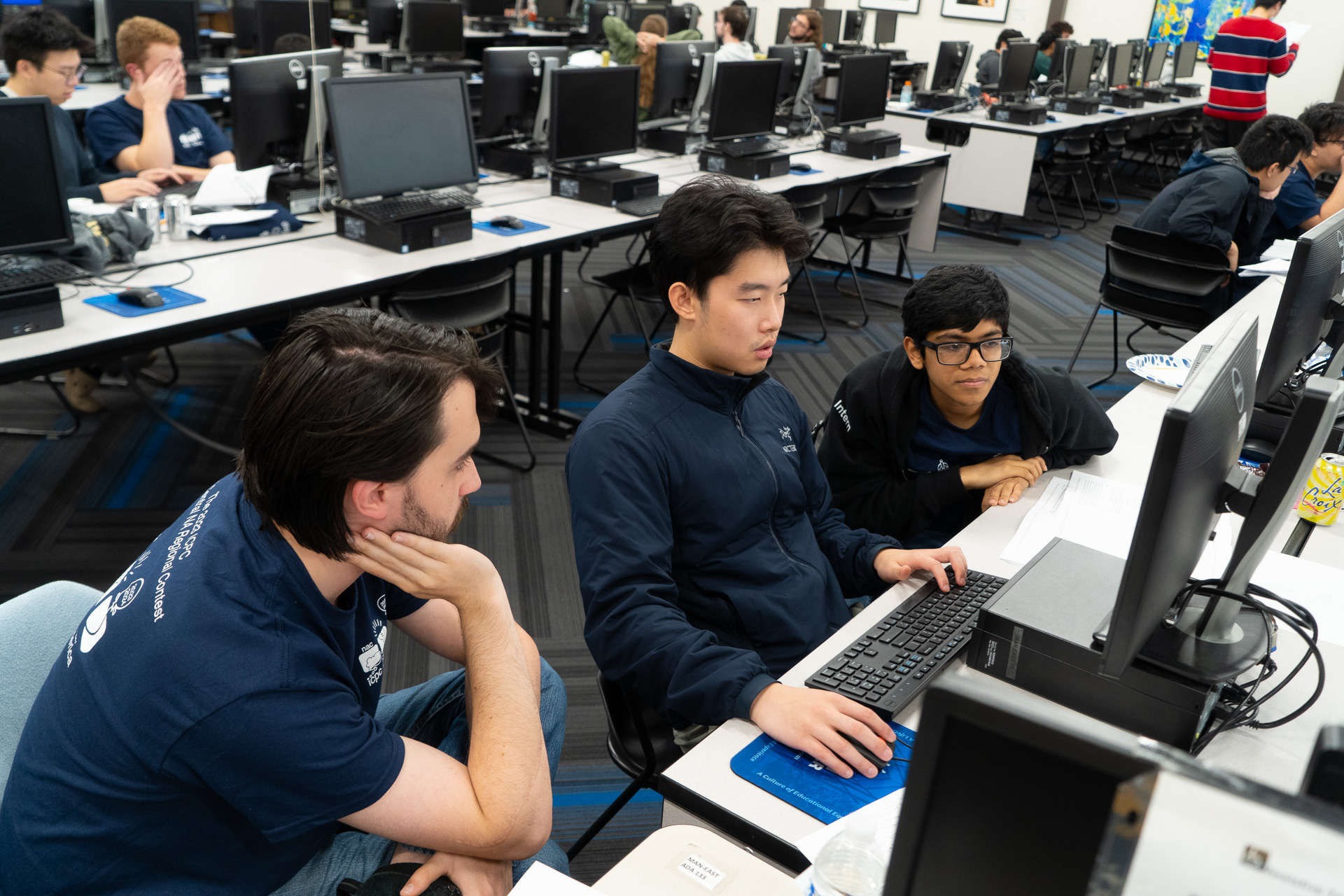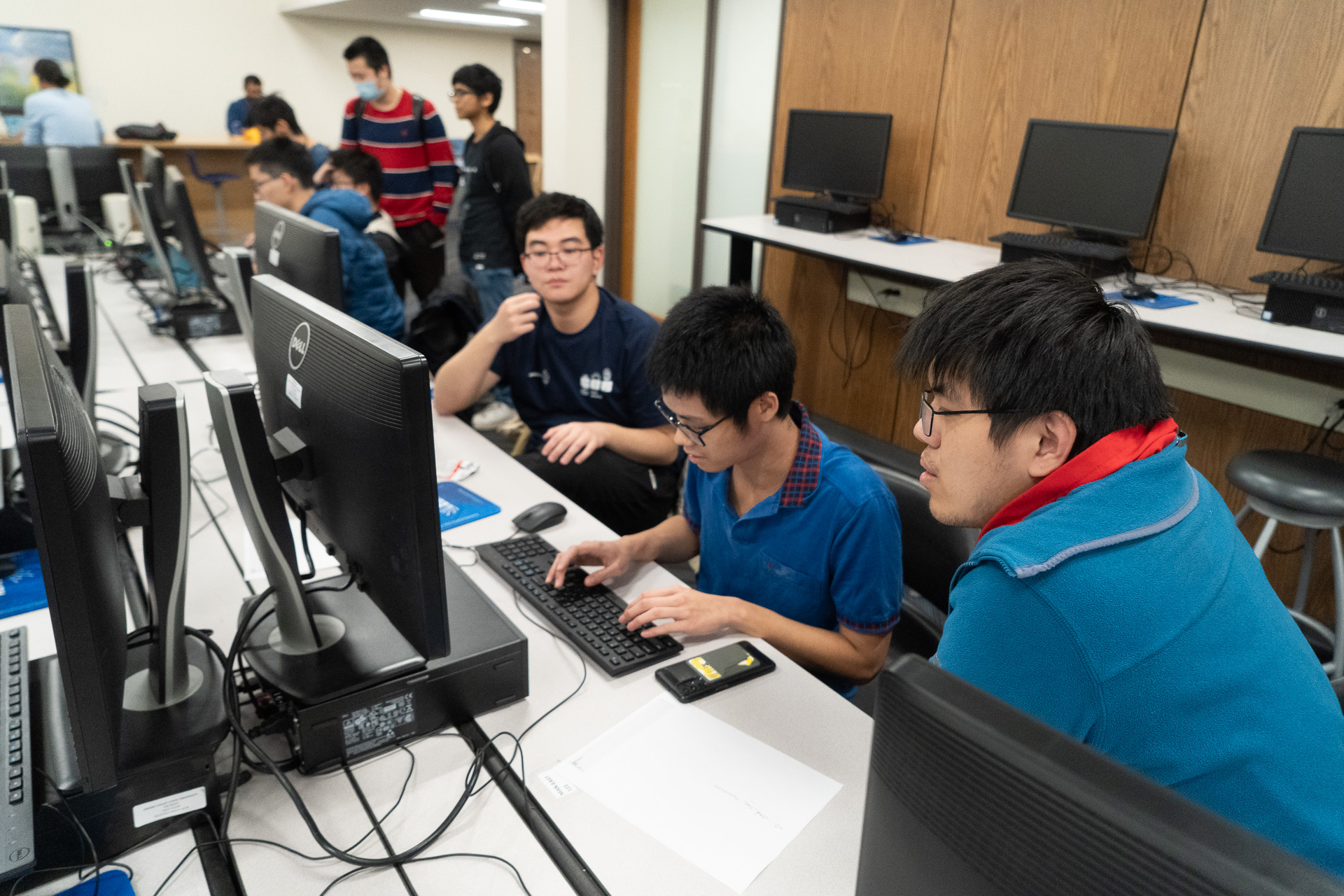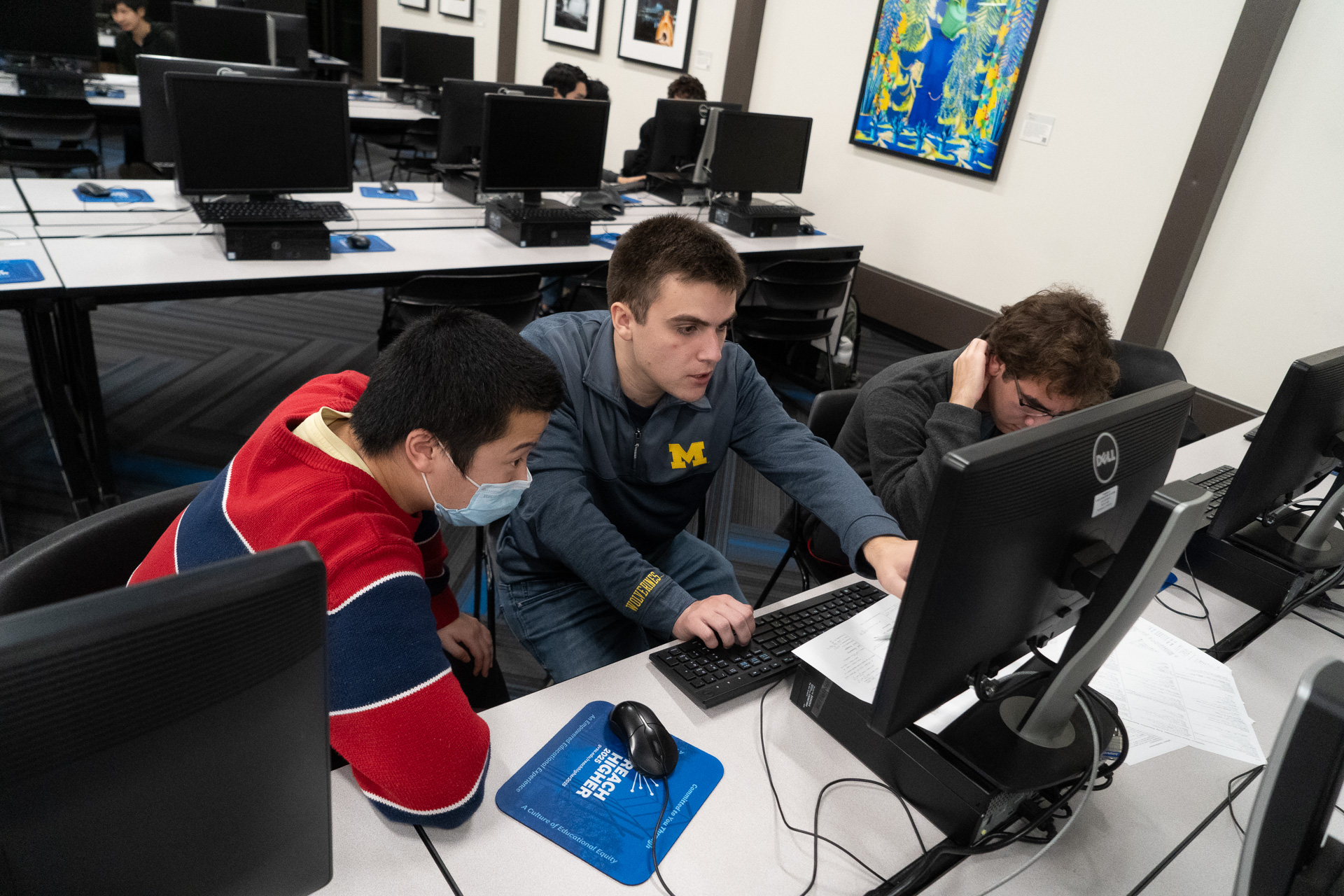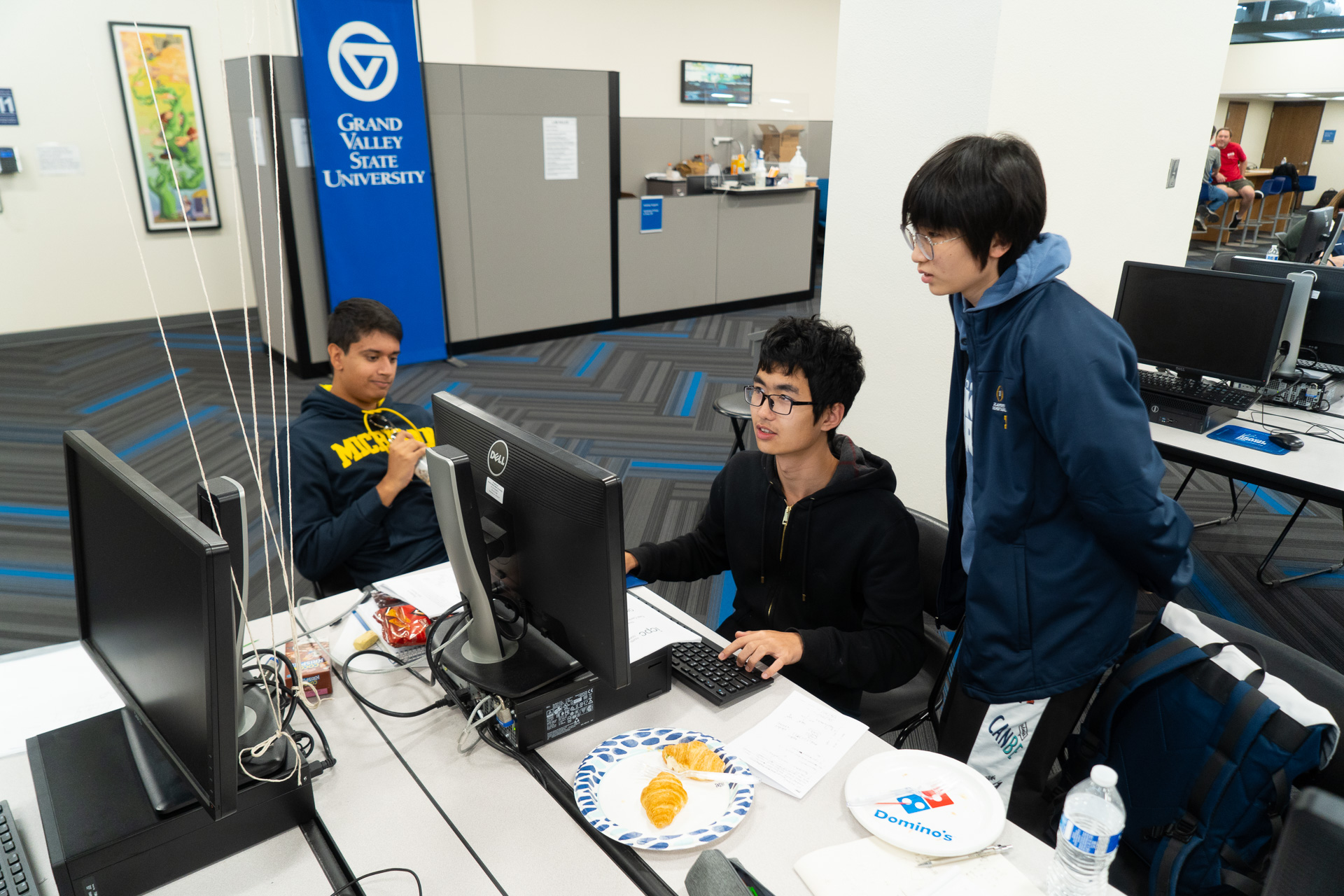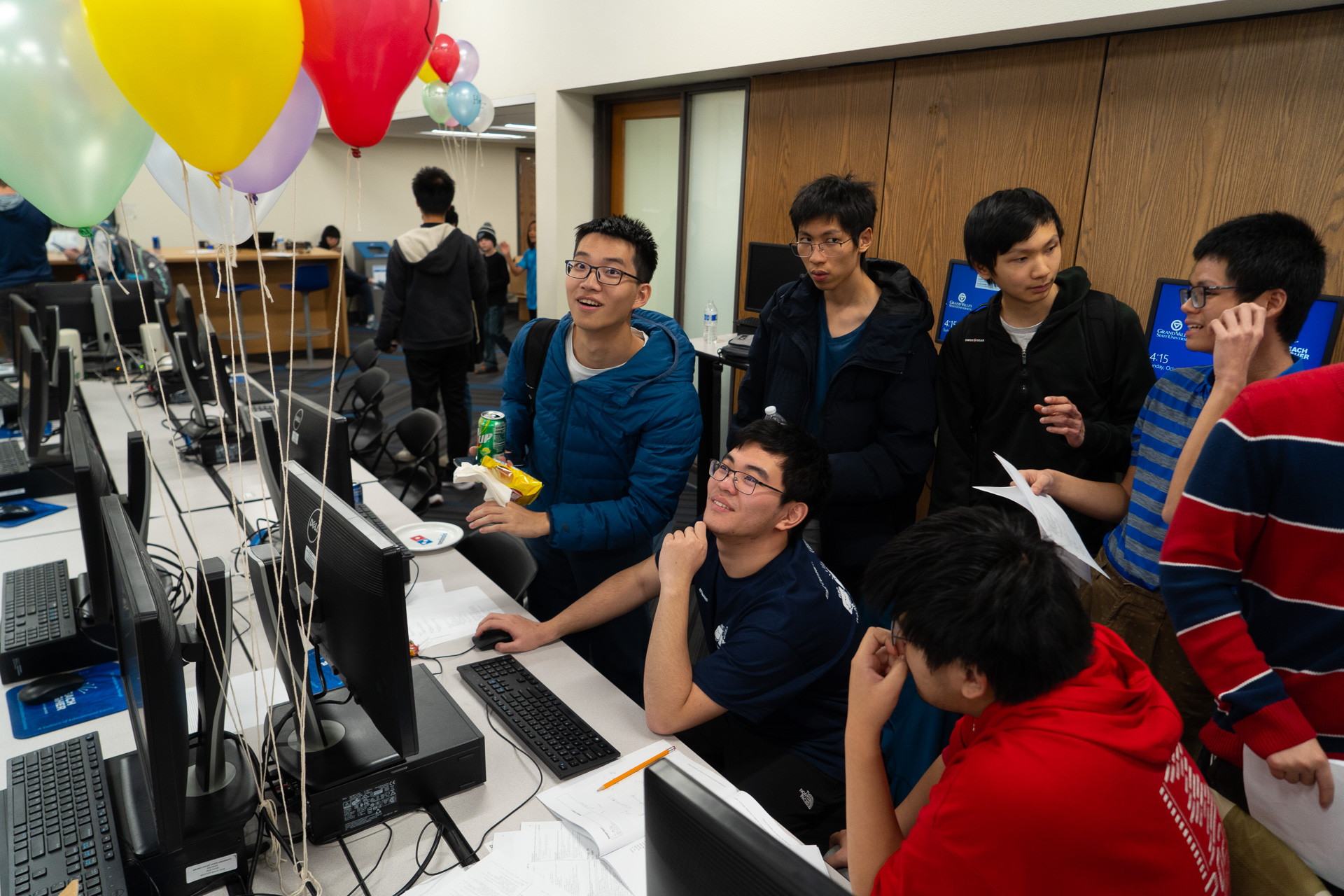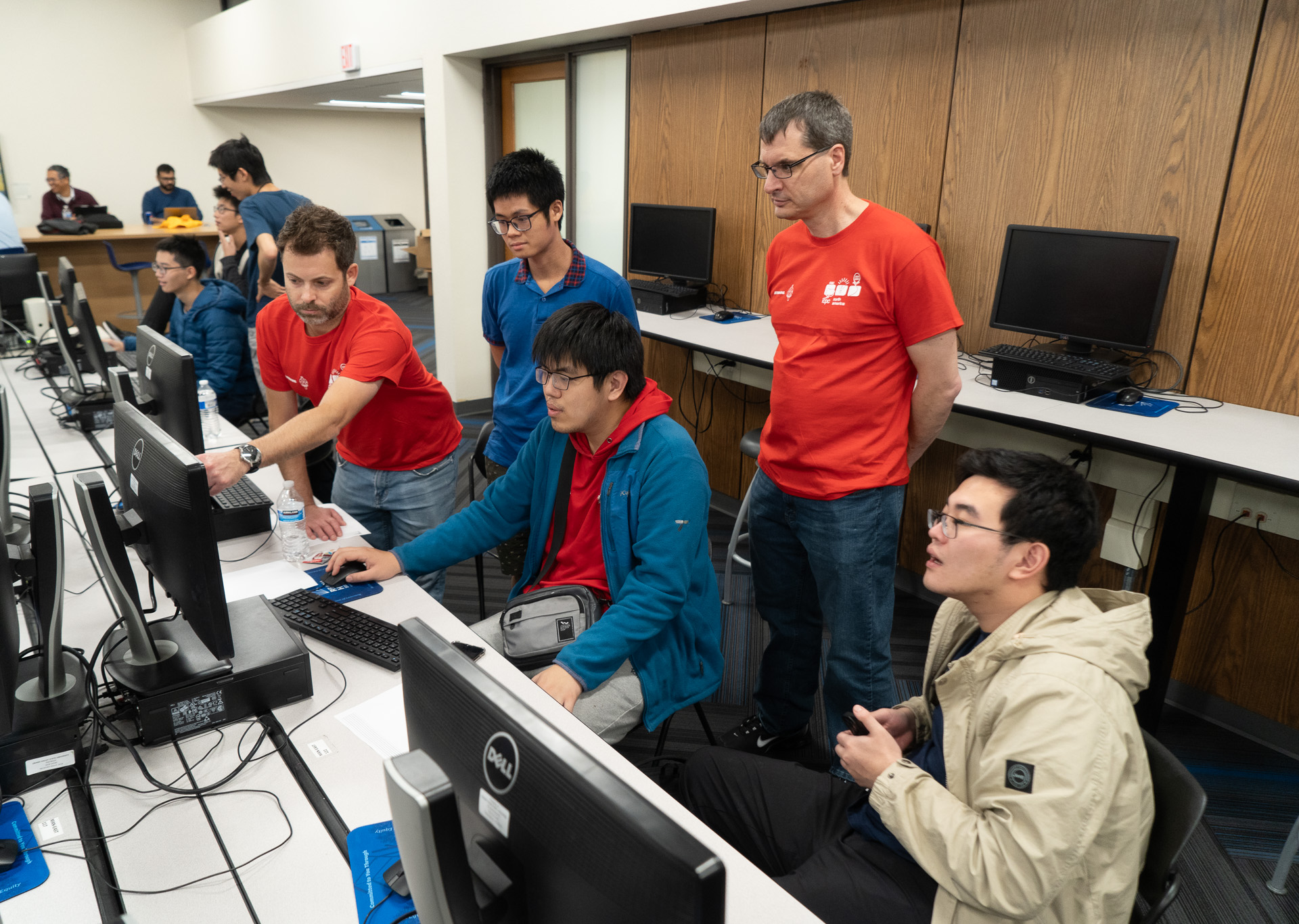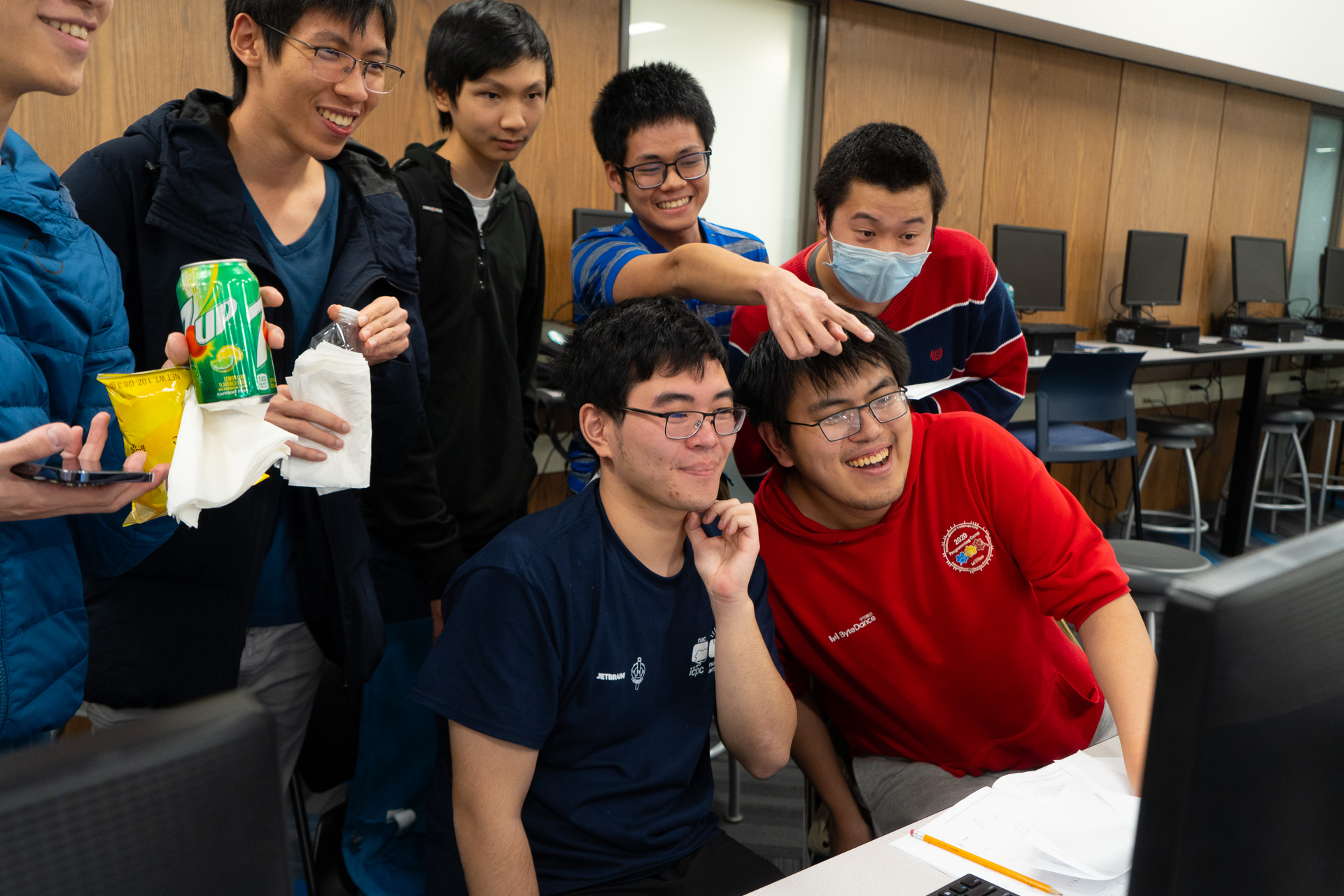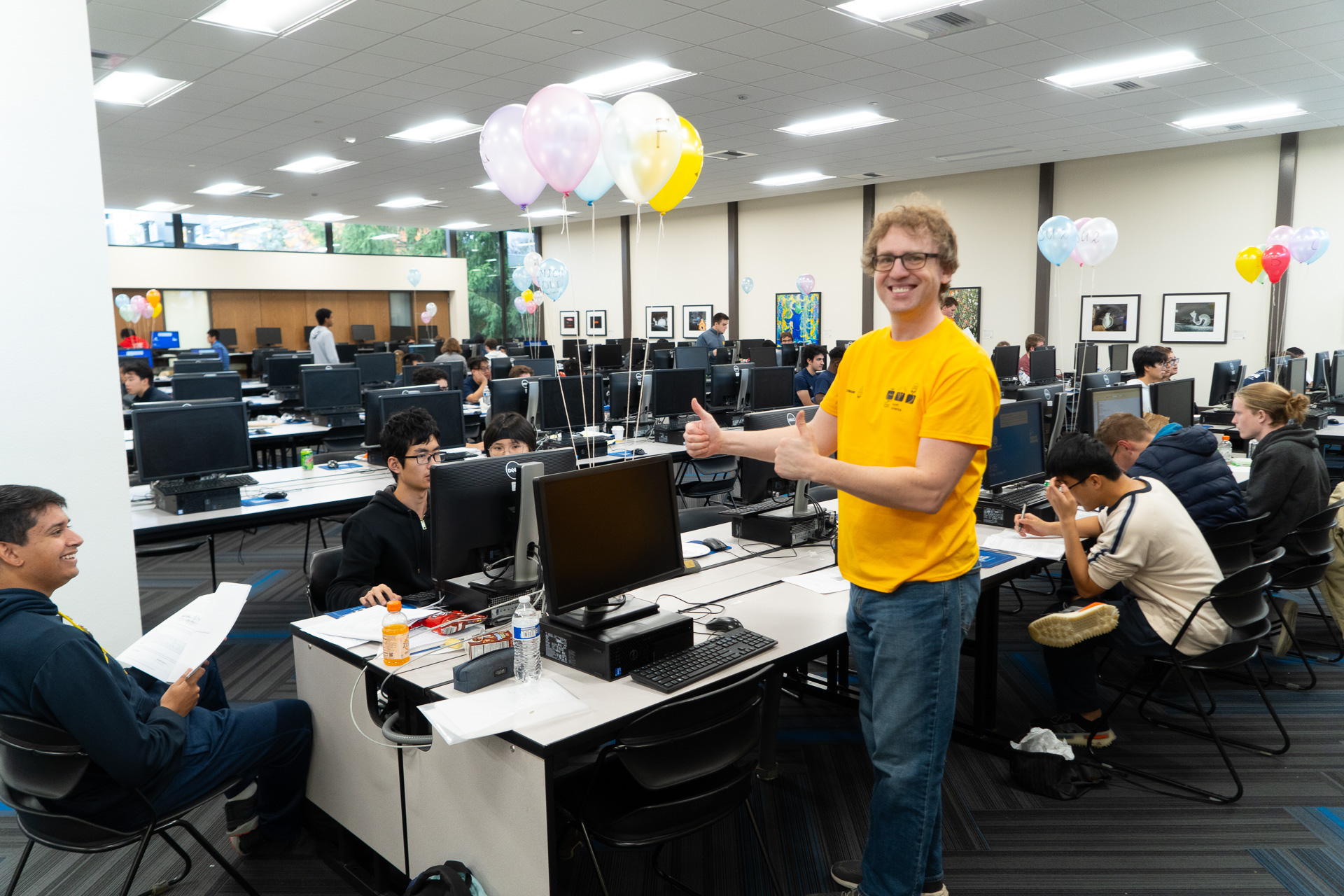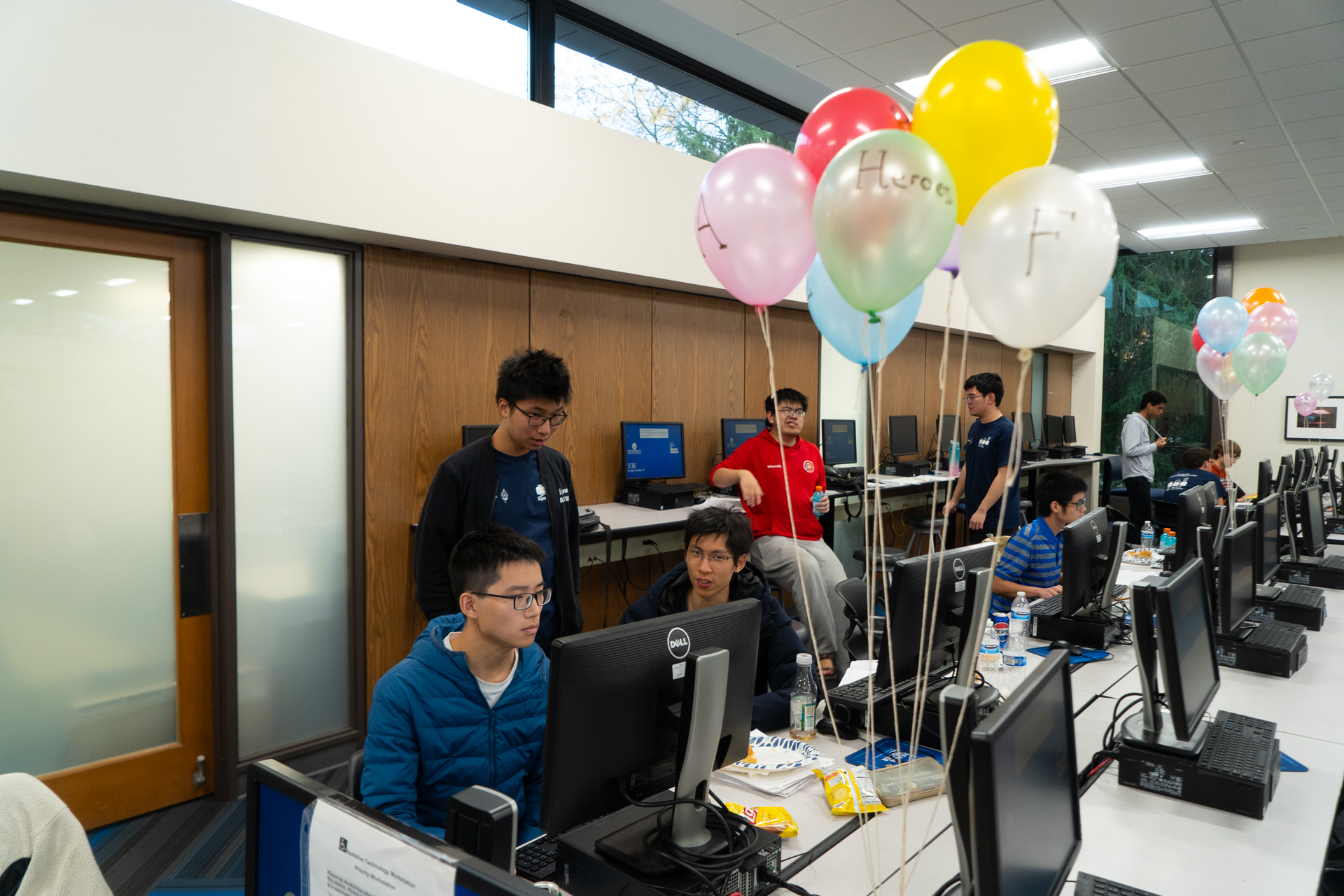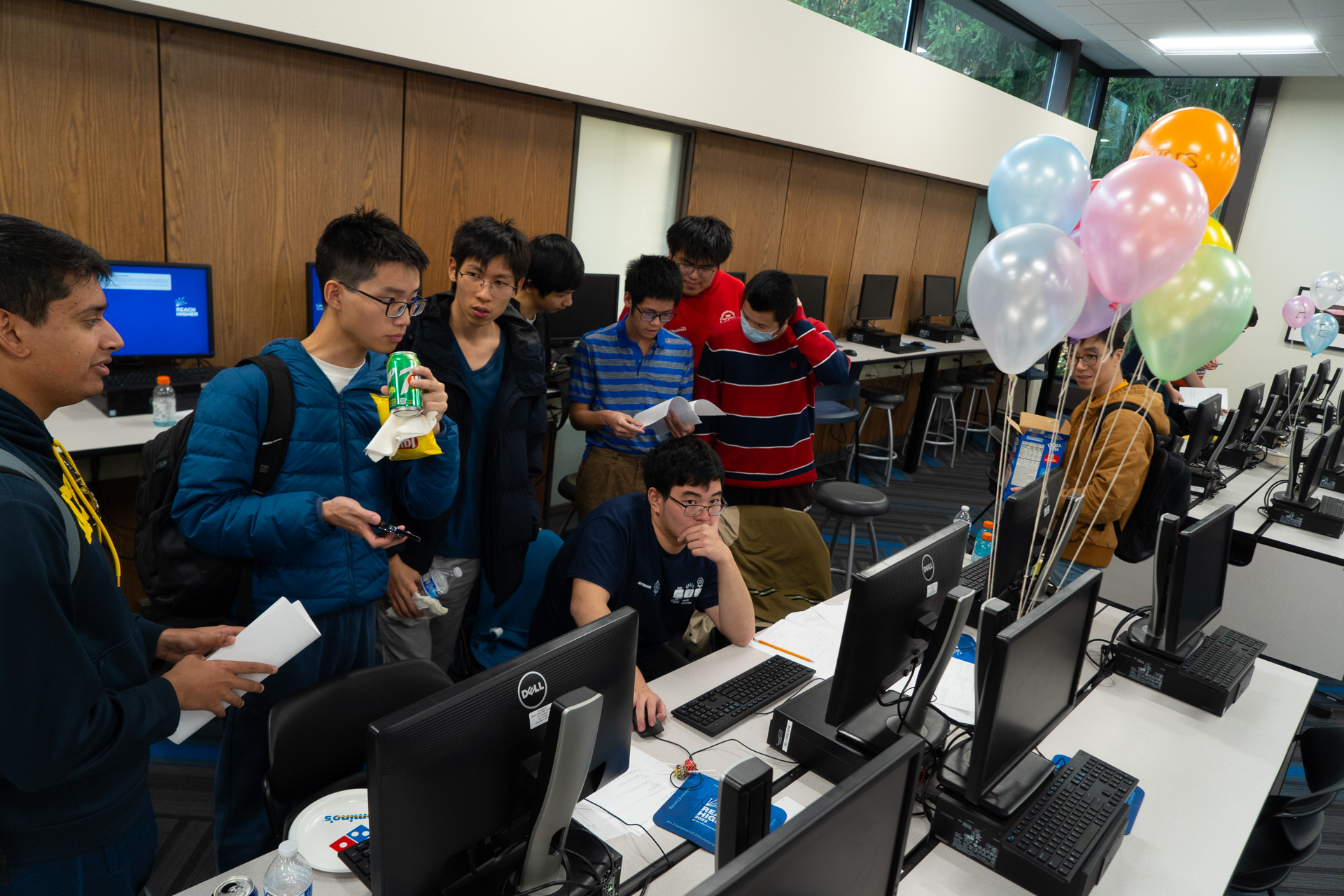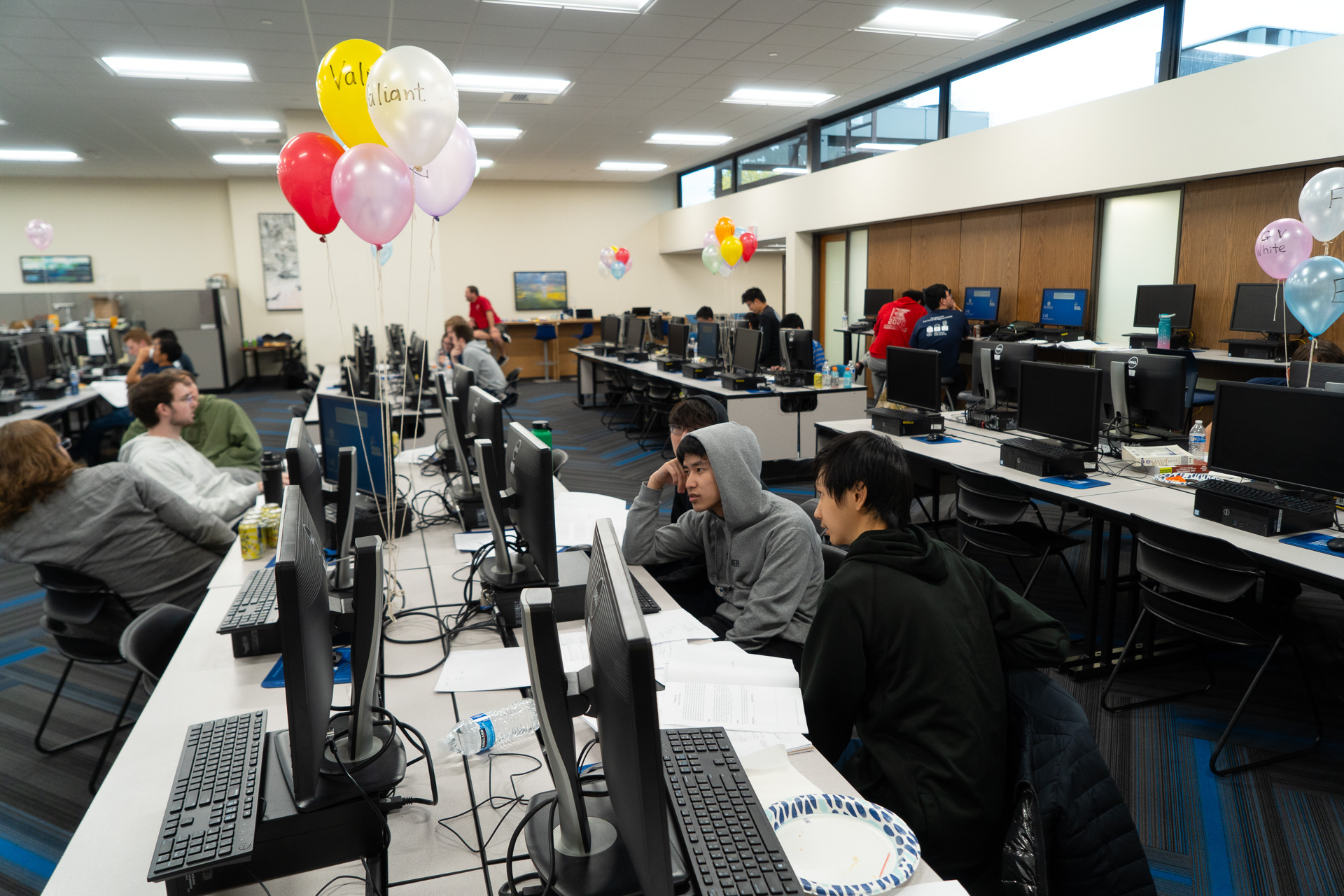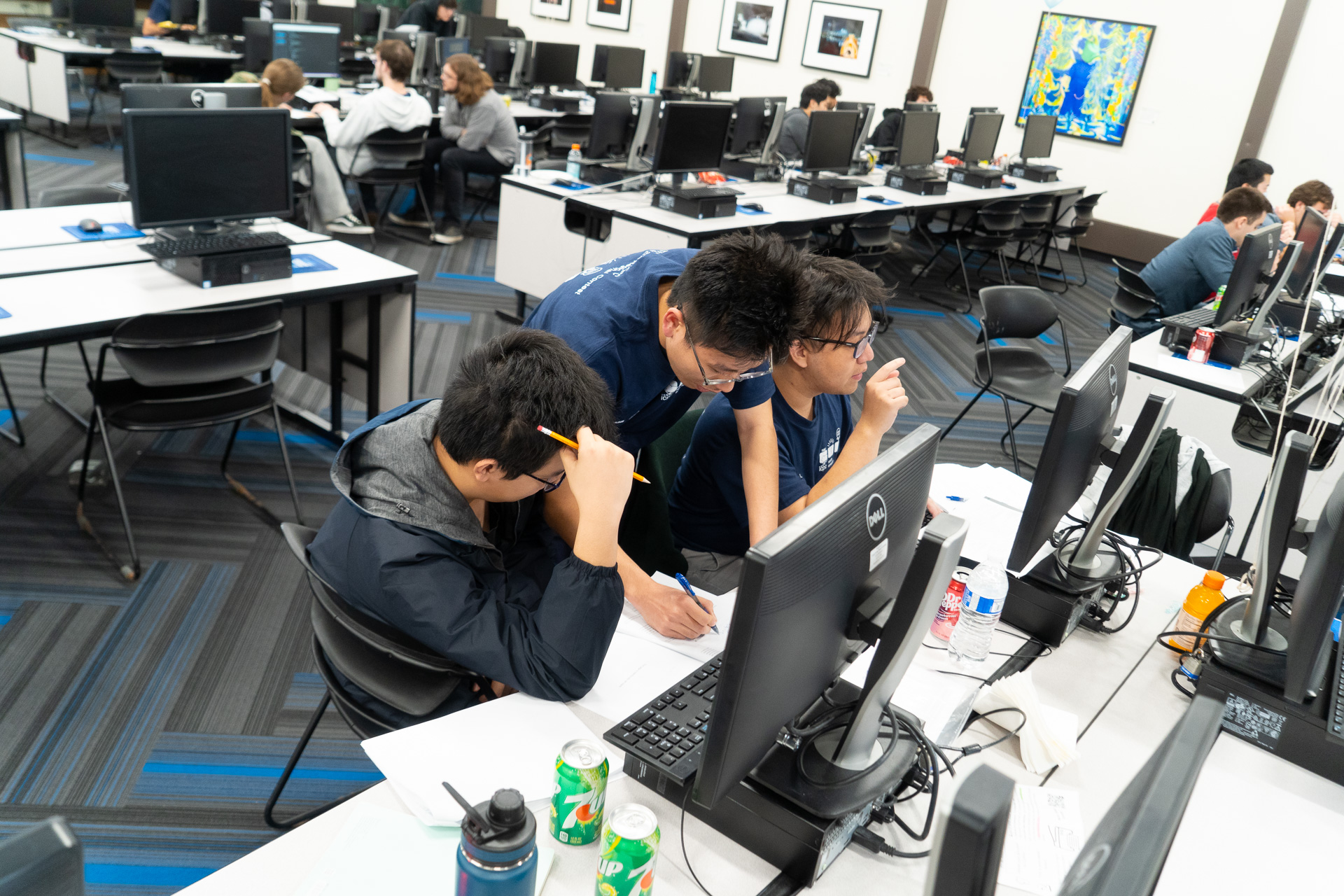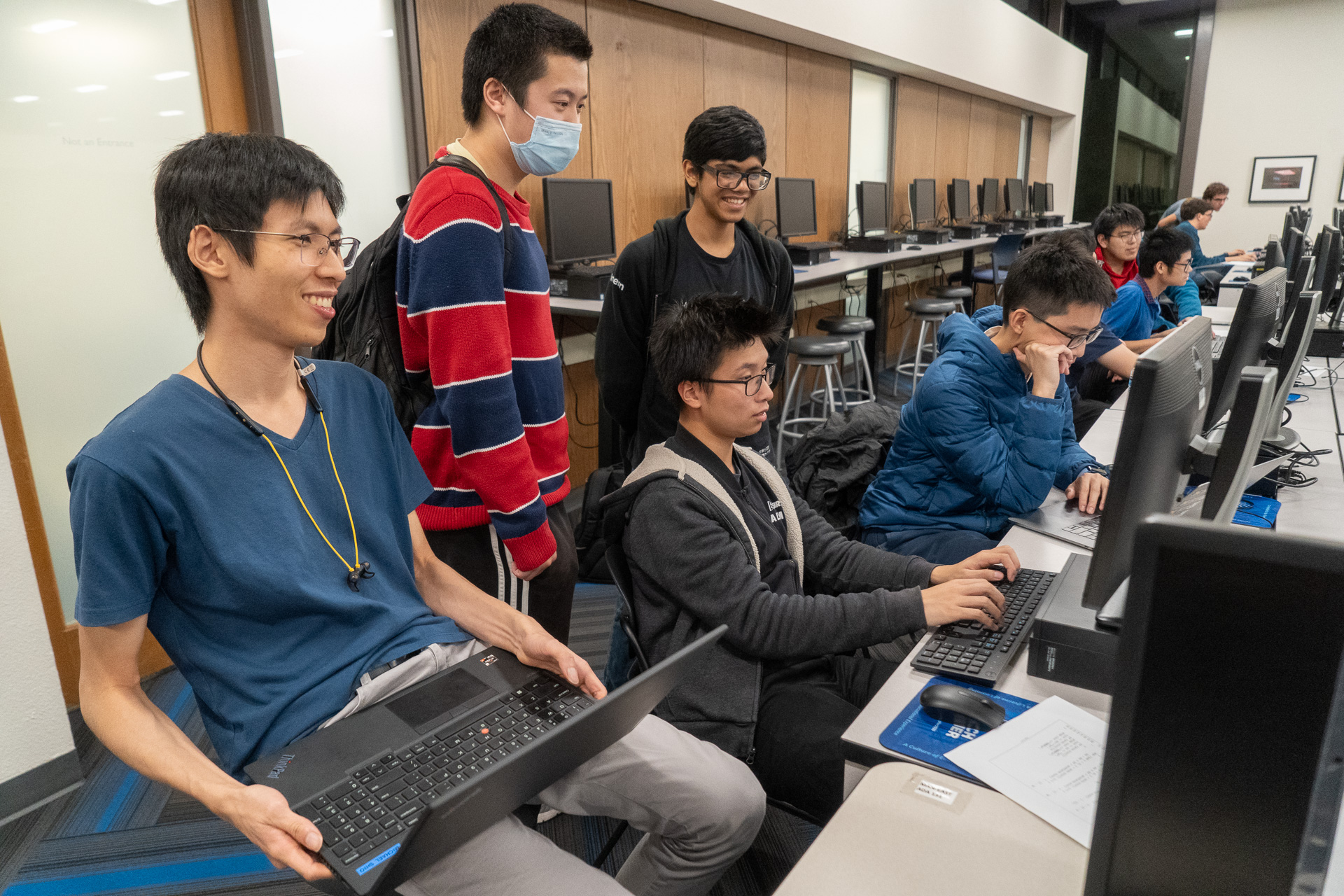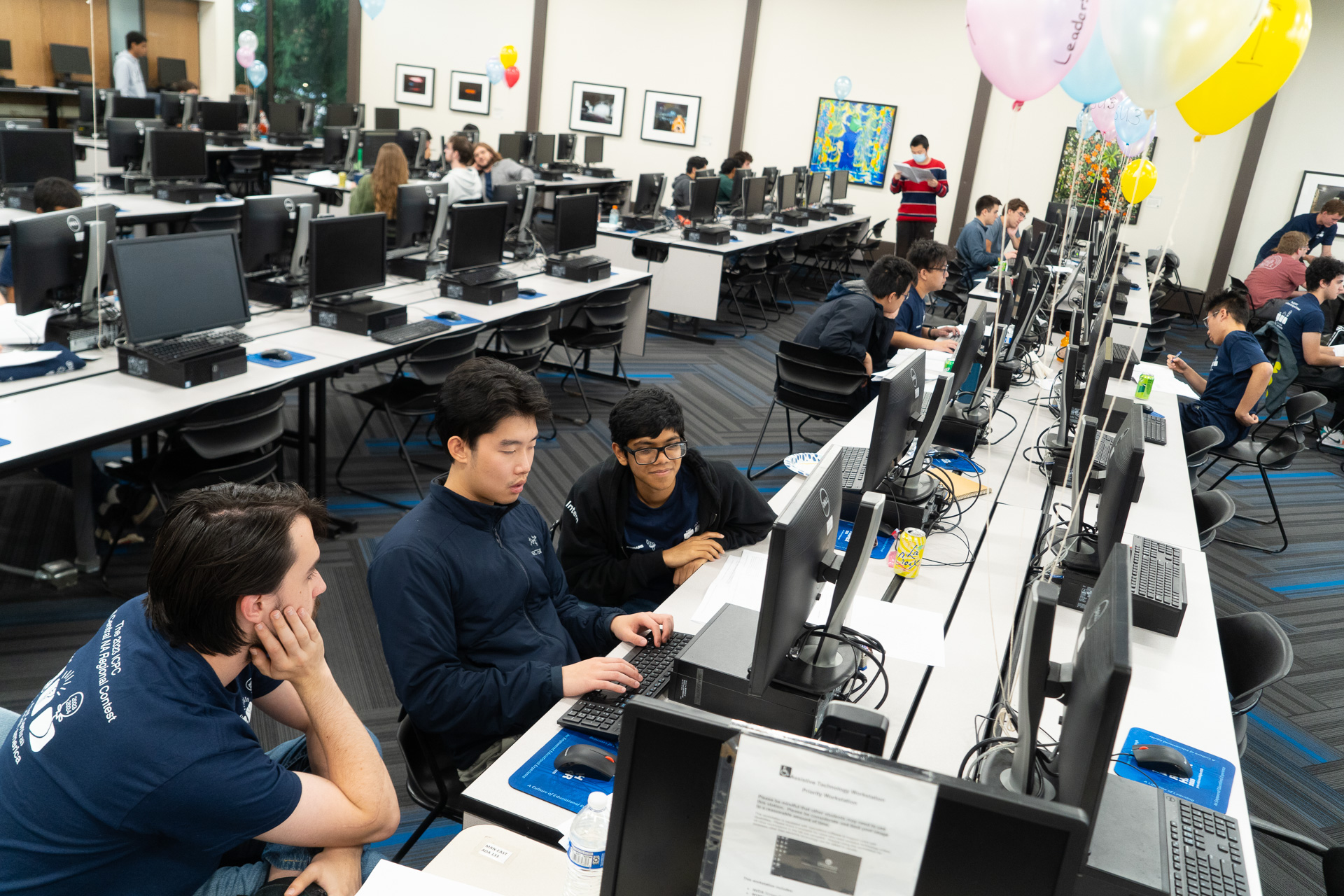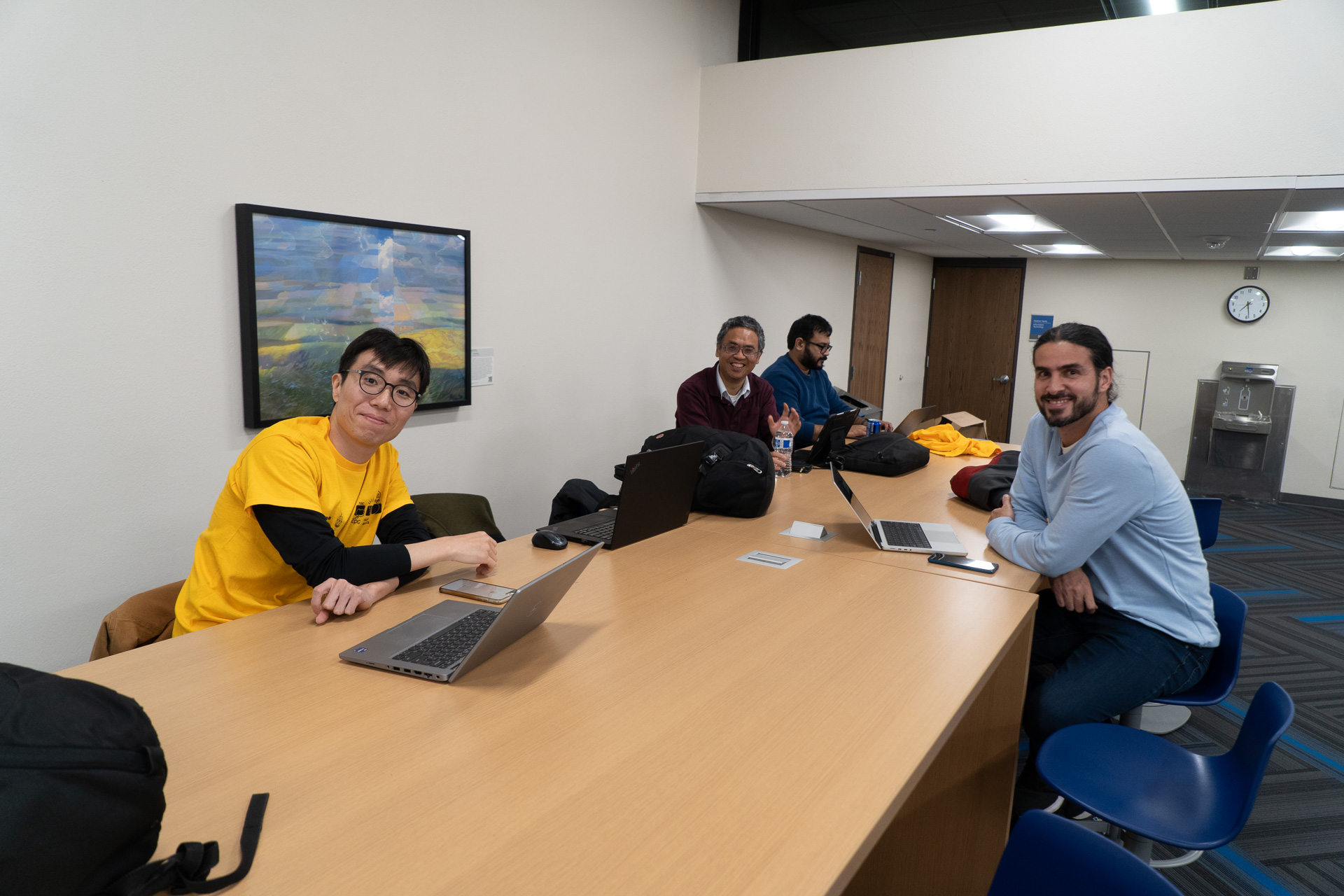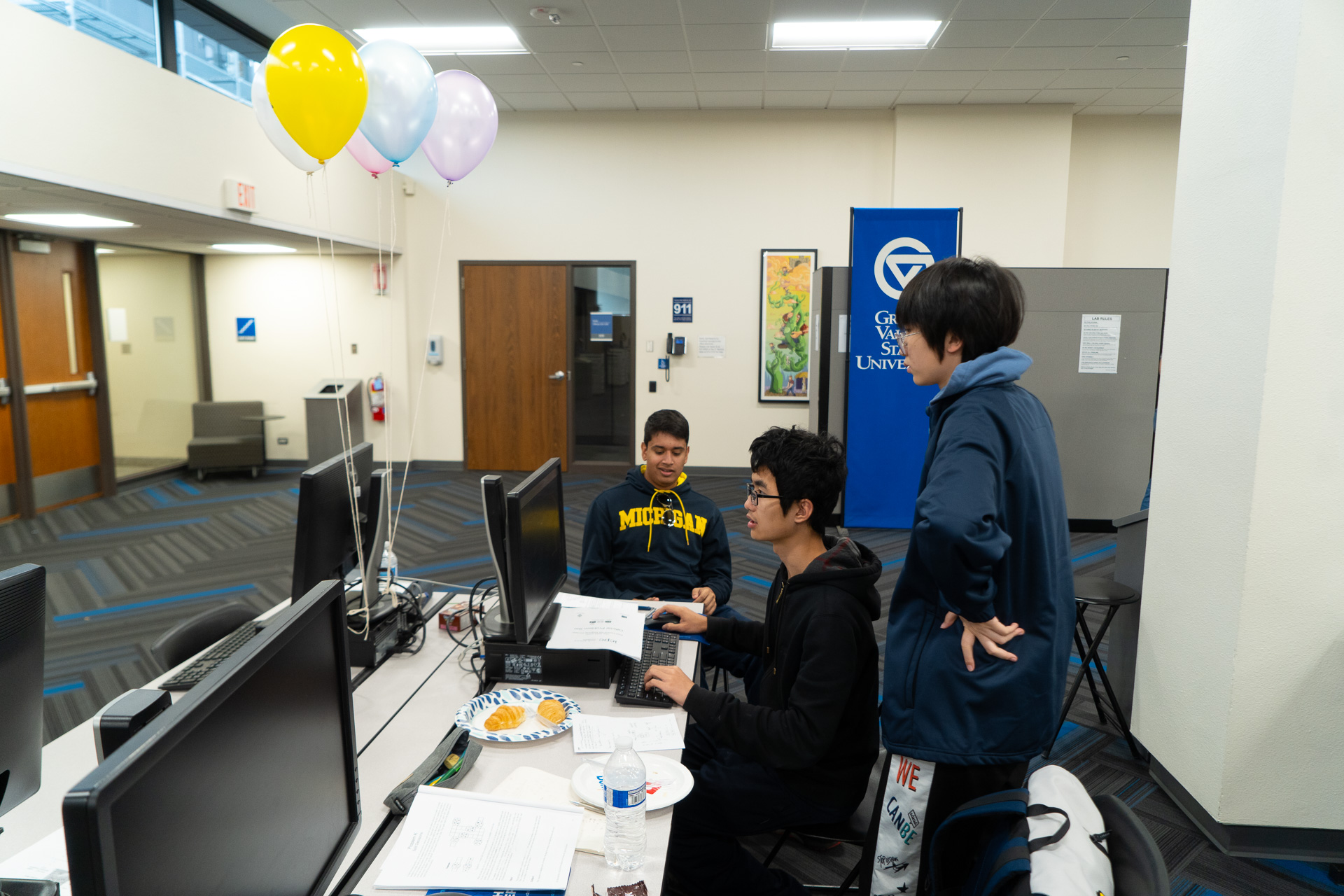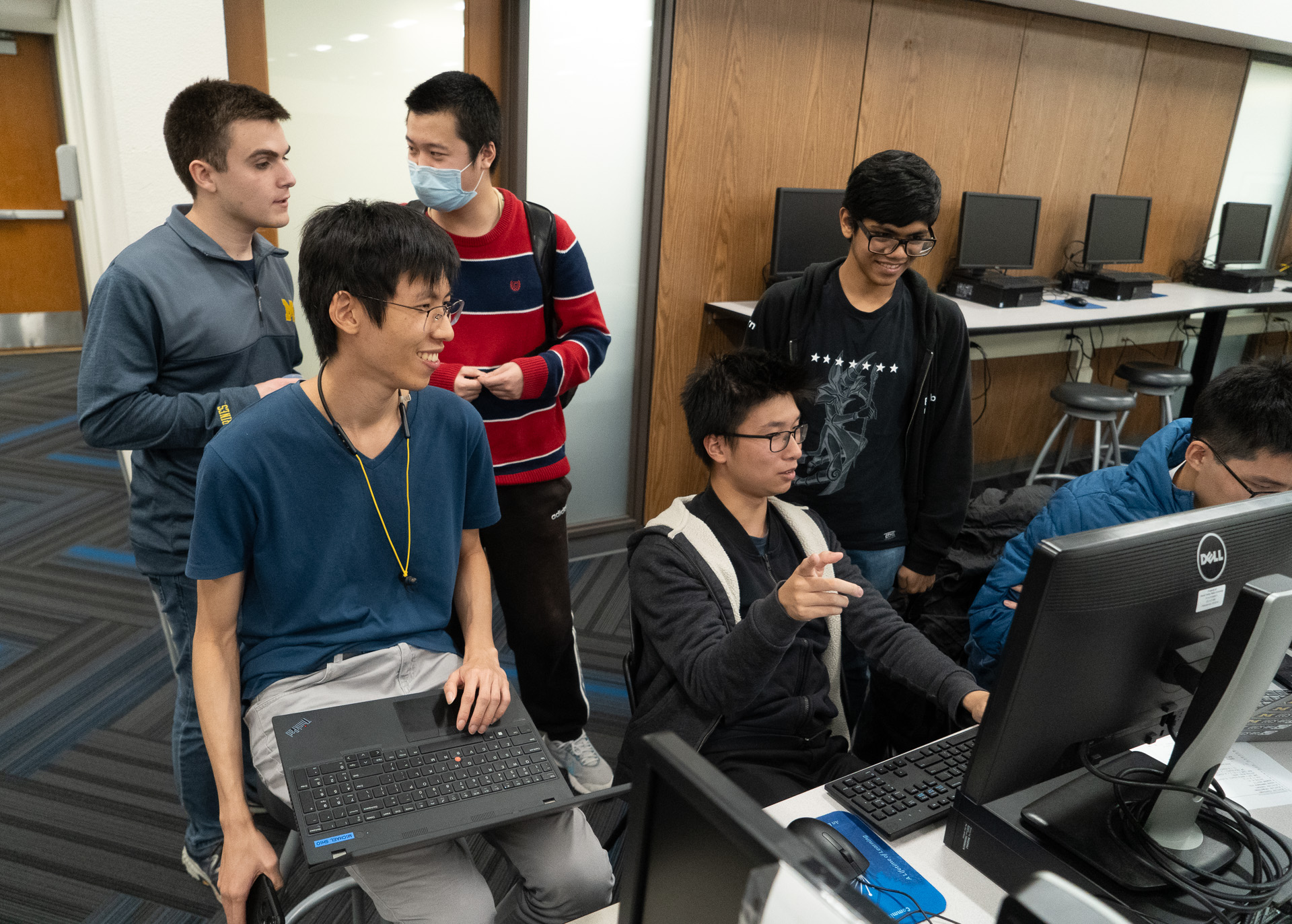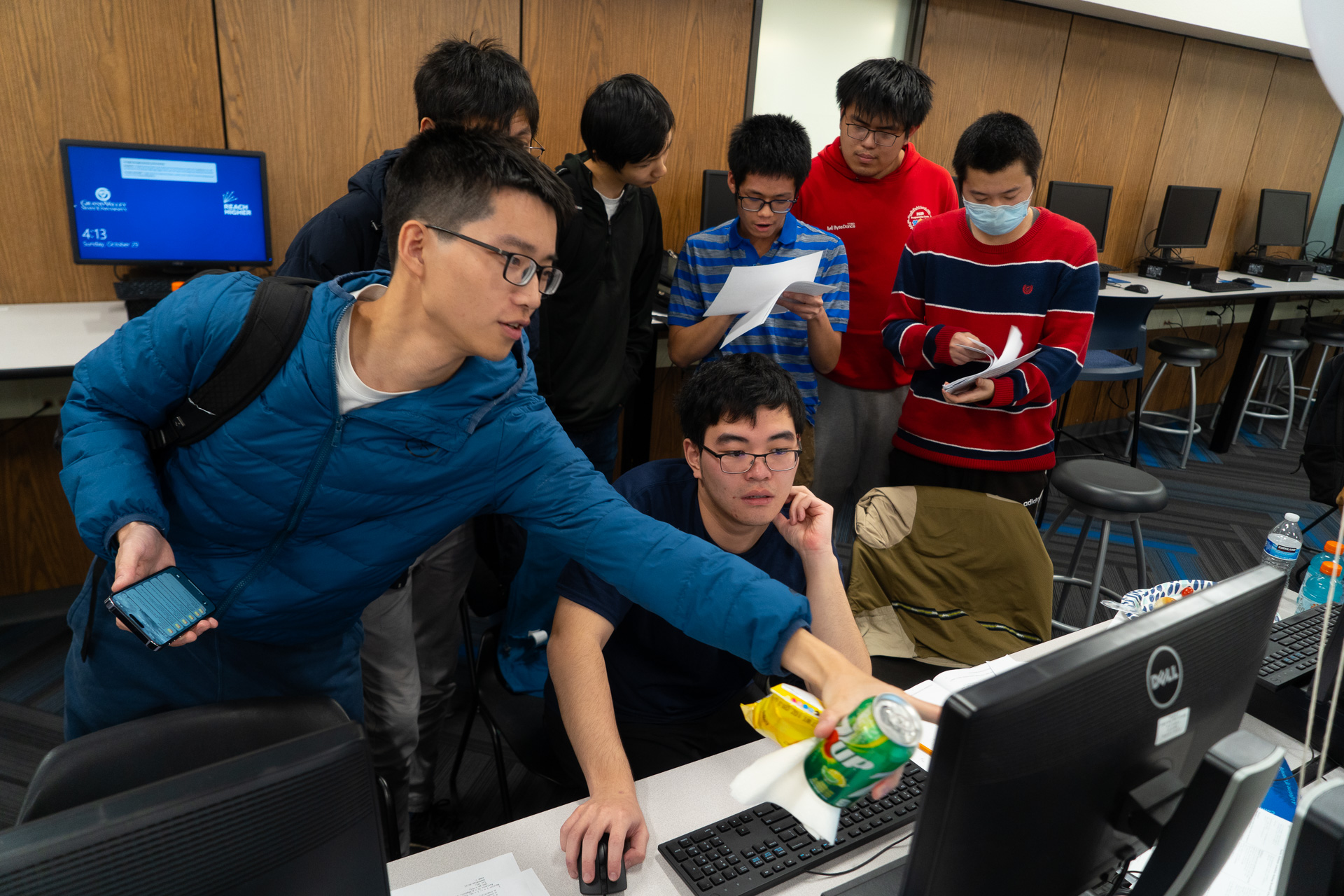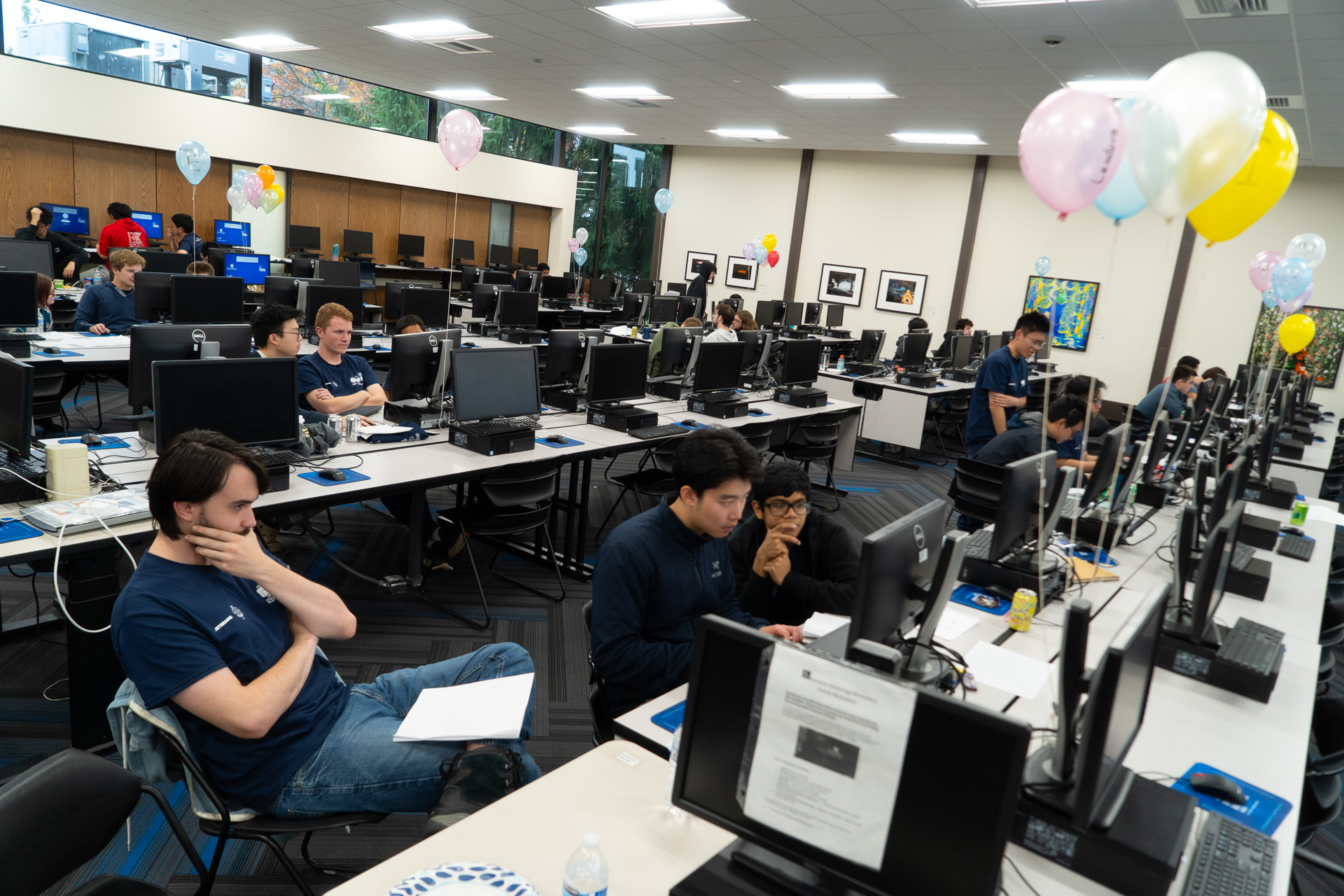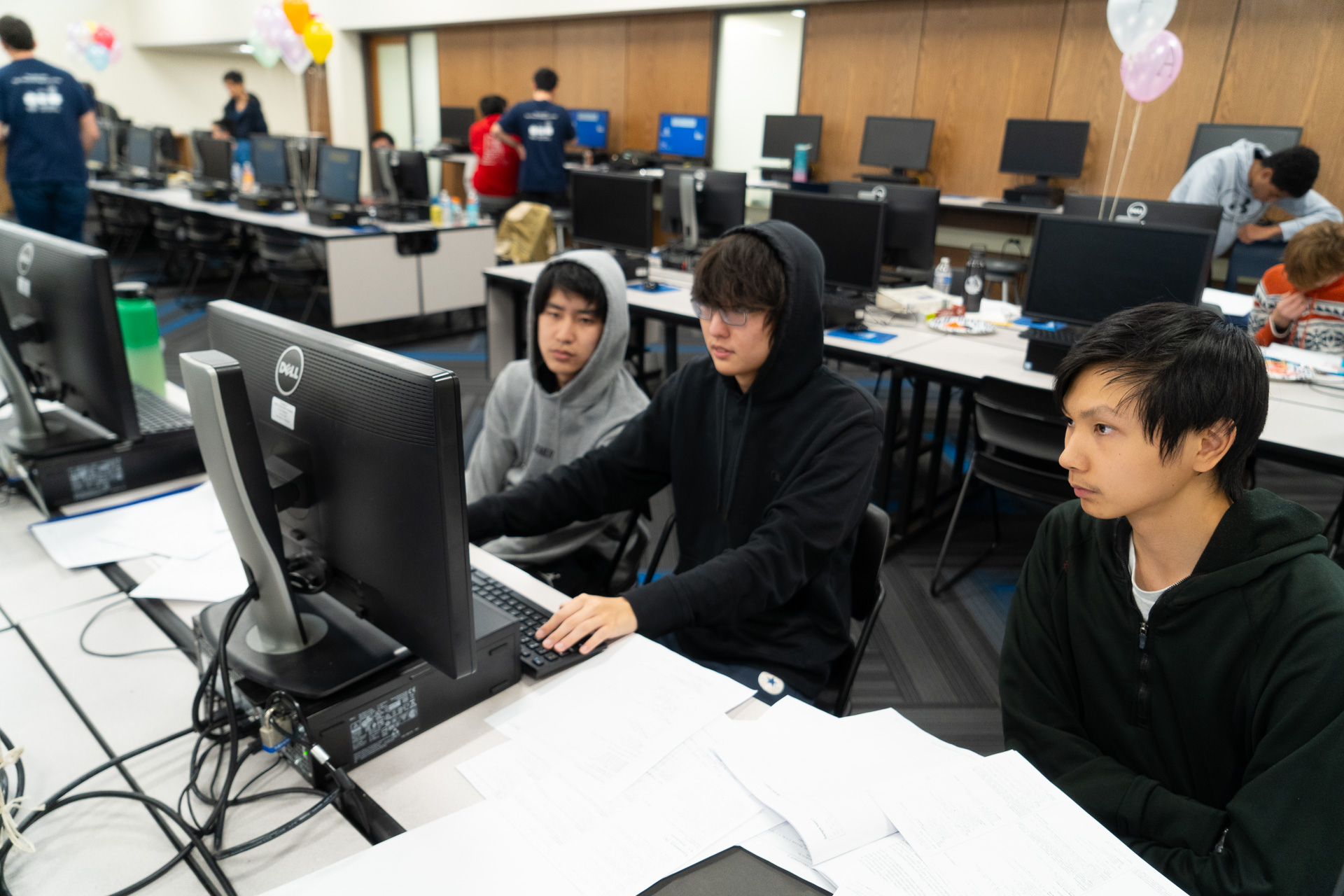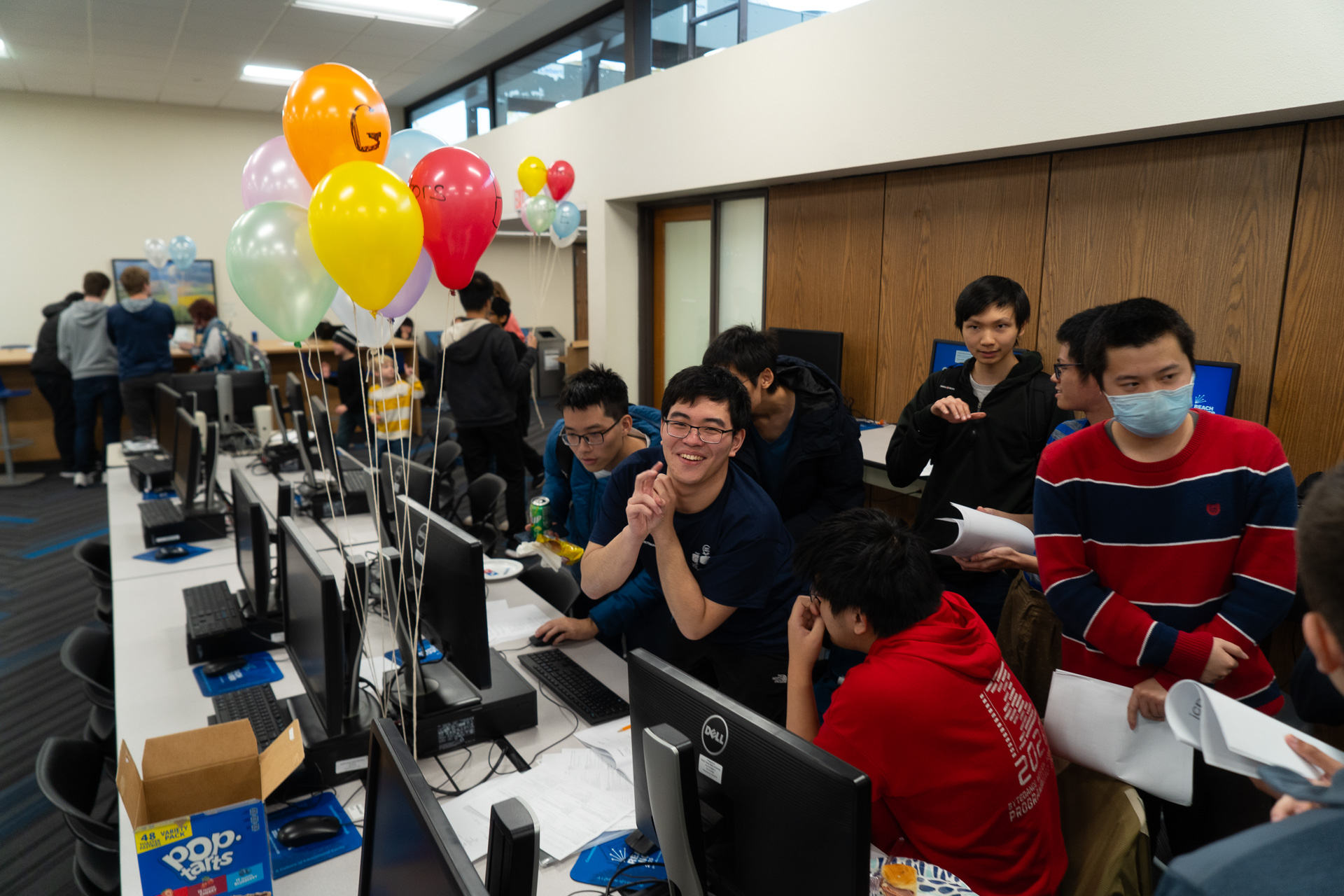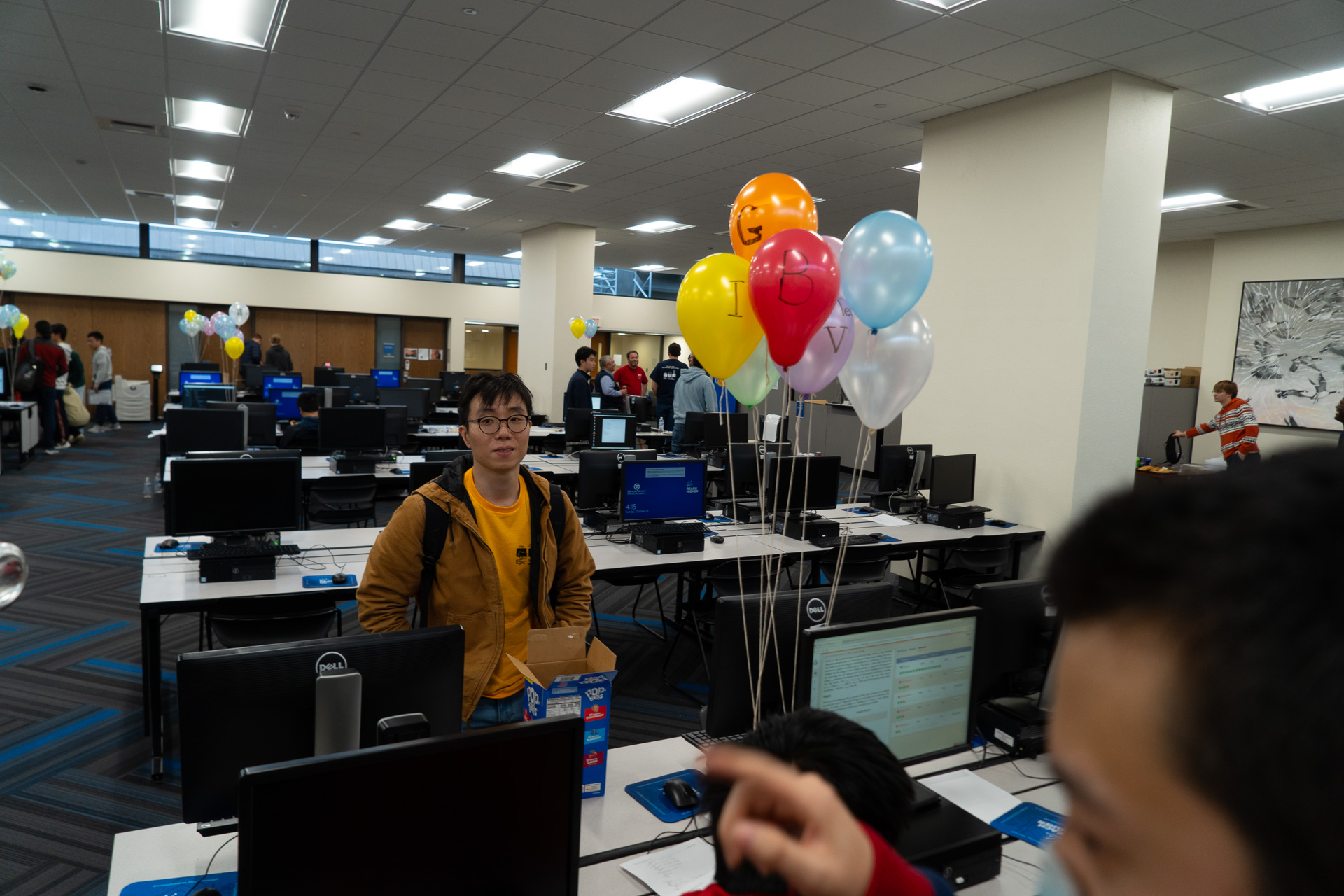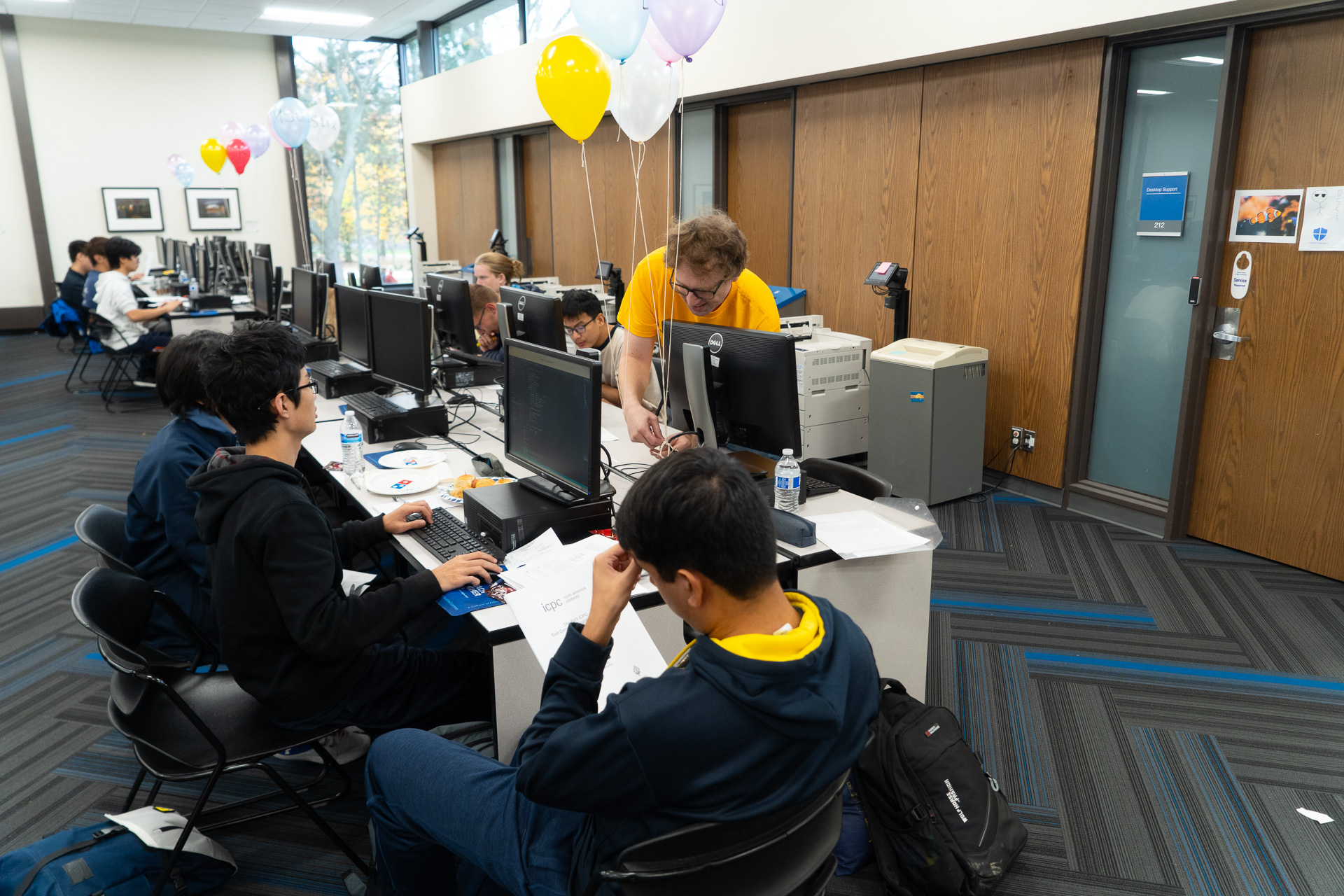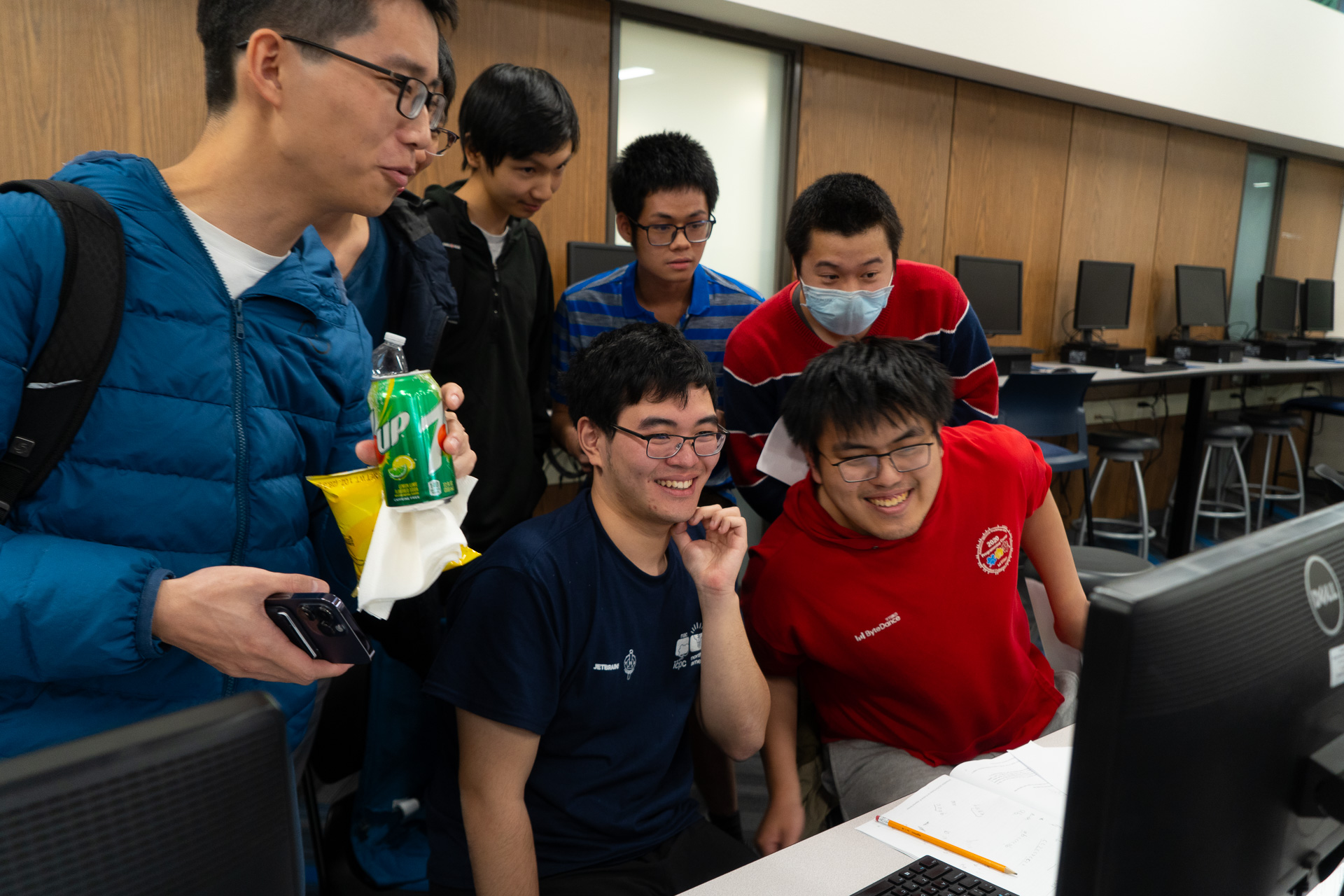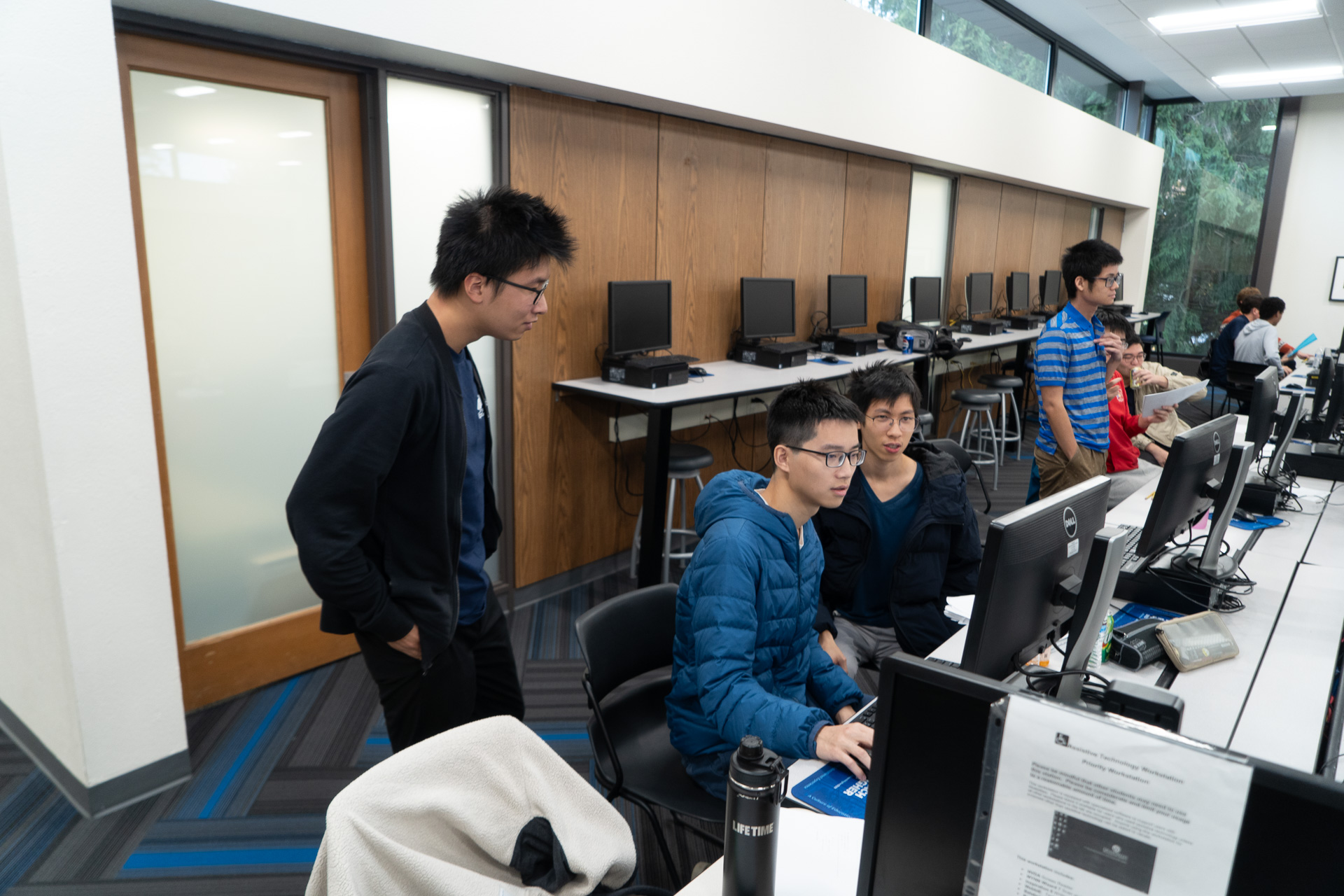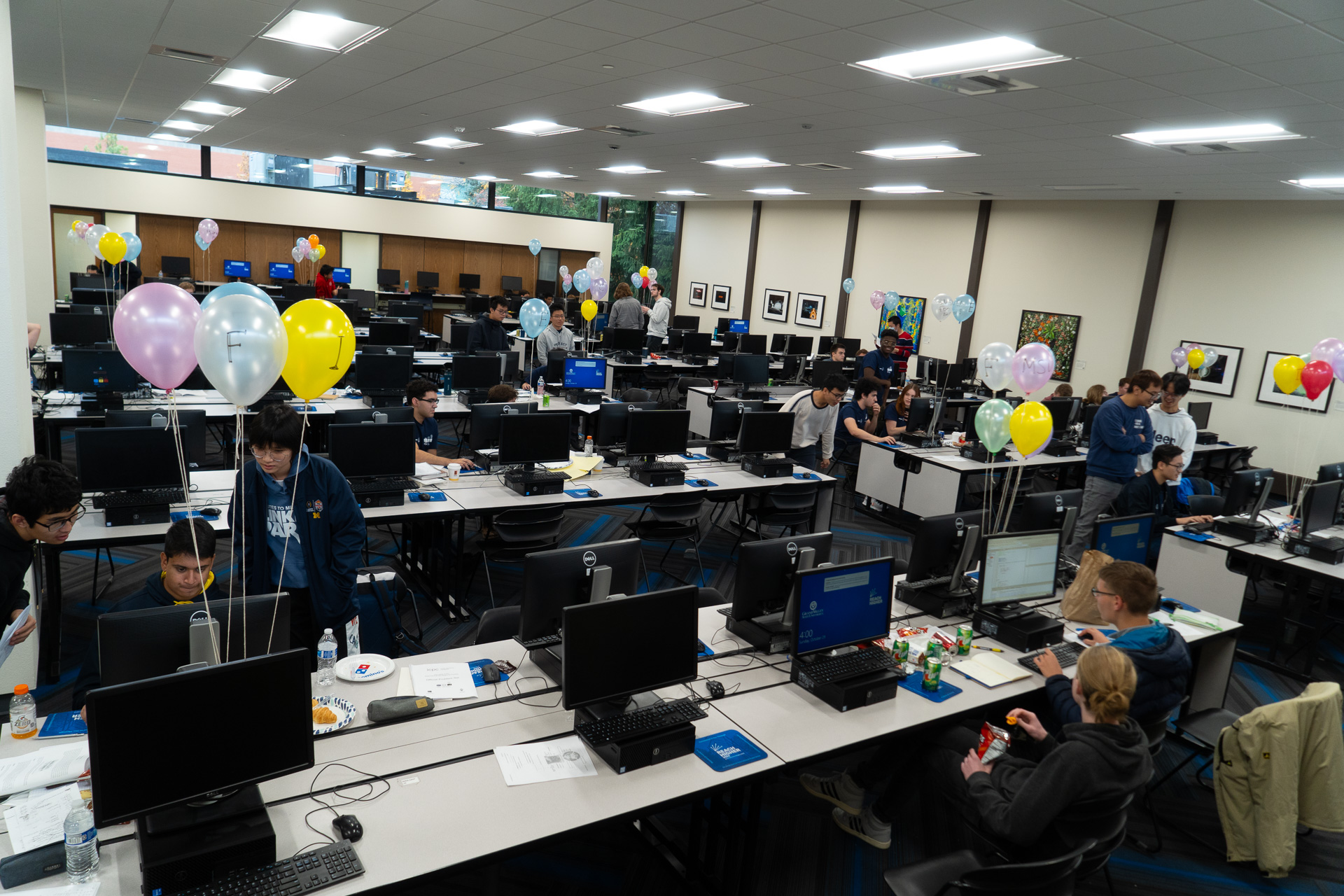Six U-M programming teams compete in ICPC regionals; team Victors advances to North American Championship
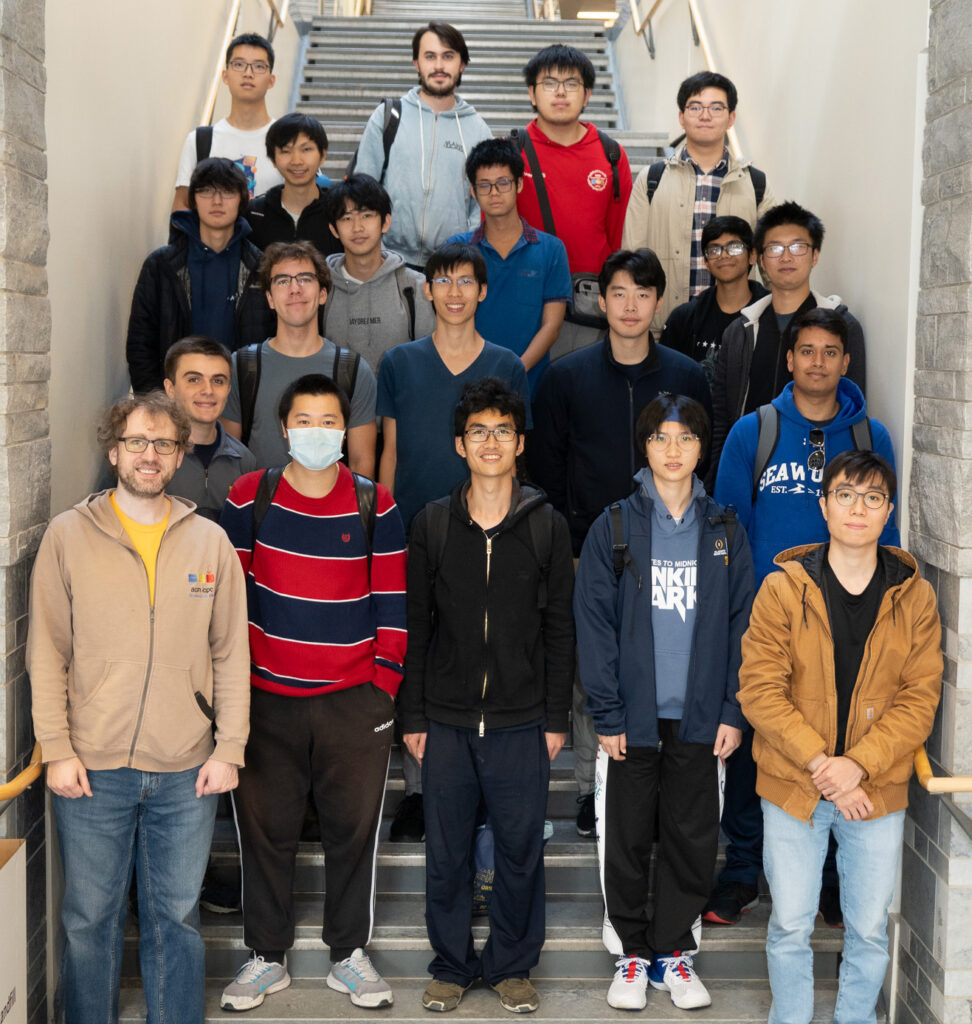
Collegiate programming teams from across the nation have begun to compete in the annual International Collegiate Programming Contest (ICPC), and a team from Michigan has made their mark early, placing second out of a field of 84 in the East Central North American Regional Contest, which was held at Grand Valley State University in Allendale, Michigan. As a result, Team Victors will advance to the ICPC North American Championship, to be held in the first half of 2024.
Organized by the ICPC Foundation, the ICPC is an algorithmic programming contest for college students. Teams of three, representing their university, work to solve the most real-world problems, fostering collaboration, creativity, innovation, and the ability to perform under pressure. Through training and competition, teams challenge each other to raise the bar on the possible. It is the oldest, largest, and most prestigious programming contest in the world.
During the regional competition, the Victors submitted correct solutions to ten problems over the course of the five-hour contest, a feat accomplished only by The Victors and the University of Waterloo Black, which placed first. The scoreboard can be seen here.
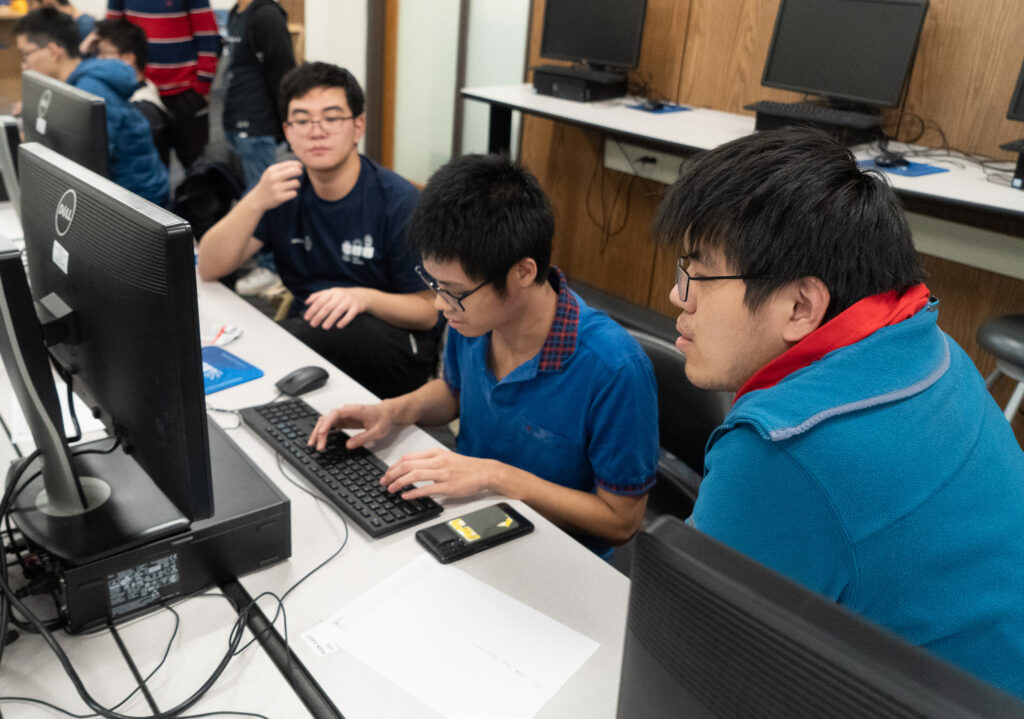
Reaching ten answers required both teamwork by the three members of the Victors and the equivalent of a Hail Mary pass for the tenth problem. The team’s answer was submitted two minutes before the end of the contest. It was accepted, placing the team in second place. Regarding this finish, Victors team member Yeyuan Chen said, “Trust in your heart and intuition is very important! The most critical problem we solved in this contest was a guessed solution without a rigorous proof. It was accepted at the last two minutes; so exciting.”
During the competition, each team of three cooperates to solve problems using a single computer. Victors team member Benyu Wang said, “ICPC is the most interesting competition format I have seen. It mixes algorithms and coding with team cooperation, real-time scoreboards, tactics, and balloons. I enjoy competing in a team since we can cooperate, discuss problems, and do what we are good at.”
Chen added, “The importance of intuition and carefulness is enlarged in competition. It’s more tiring and intensive but also makes me feel more energetic and motivated.”
According to Emeritus Prof. Kevin Compton, co-coach for Michigan’s programming teams, “Team Victors really excelled; their ten-answer performance was impressive. We took six teams to regionals this year – three vans full – which included some returning competitors and a number of new members. All of the teams performed really well; I am very proud that we could field so many strong teams.”
Co-coach and U-M Dearborn alum Dennis Matveyev notes that interest in the U-M programming teams has grown in recent years. “2018 was the first time that we were able to field six teams in regional competition. In 2022 we had eight teams! It is great to be able to continue to include so many teams”.
The student programmers on this year’s six U-M teams are named below.
- The Victors: Tuong Le, Yeyuan Chen, and Benyu Wang
- The Valiant: Jiajun Yan, Jaiden Shin, and Marcus Gozon
- The Conquering Heroes: Michael Shio, Ivan Wei, and Mingchun Zhuang
- The Leaders and Best: Ayan Chowdhury, Christopher Davis, and Arthur Wang
- The Champions of the West: Xiaomi Zhou, Zheng Luo, and Sidhant Roymoulik
- The Maize and Blue: Alexander Victor De La Iglesia, Andrew Keil, and Jerry Li
Ivan Wei of the Conquering Heroes is glad that he took the step to join a U-M programming team this year. “I would tell someone who is thinking of trying out for a programming team to not be intimidated by the contest, and that honestly just EECS 281 subjects and a lot of practice will get you far. I think it is a fun experience to think about these problems and see the creative solutions, so it is totally worth it to try out.”
Wang also commented on what it’s like to join and compete on one of U-M’s programming teams. “Practicing in The University of Michigan Programming Team is also very interesting. We have a good team with very good coaches. The problems in the actual competition are not very different from what we use to practice. We just followed our way to compete as in the practices.”
In addition to Compton and Matveyev, coaches for this year’s teams include Prof. Euiwoong Lee, alum Shang-En Huang, and current CSE PhD student Yaowei Long.
Compton has been organizing and leading University of Michigan student programming teams since 2001, and has coached teams that have advanced to the World Finals nine times. In 2014, he was recognized with the ICPC Coach Award for leading five or more teams to the World Finals competition.
Lee competed on Caltech teams as a student and went to the World Finals twice.
Matveyev, who competed on U-M Dearborn teams as a student, has been coaching U-M teams in the ICPC since 2009. In 2021, he was recognized with the ICPC Coach Award for leading five or more teams to the World Finals competition.
Huang competed on National Taiwan University teams as a student and went to the World Finals twice, winning a gold medal in 2010.
Photos from the regional competition are below.
 MENU
MENU 

